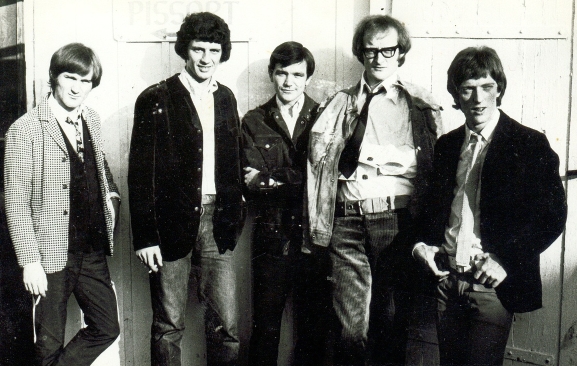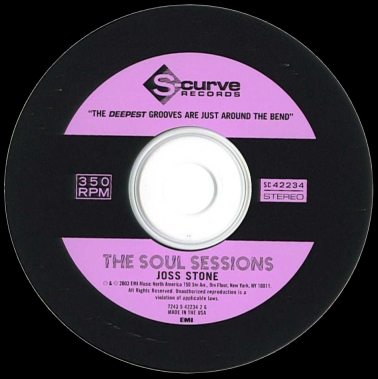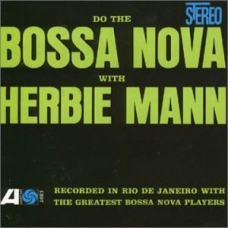 Herbie Mann travelled to Rio in 1962 and came back with the album "Do
the Bossa Nova", today a classic example of that happy marriage of jazz
and Brazilian popular music. He teamed with Castro Neves, Baden Powell
and the great Tom Jobim, the composer of Quiet Nights and The Girl from
Ipanema to cover bossa nova standards and more percussive mainstream
samba numbers. The result is irregular but always inspired and worth
listening. The track Consolação, a dueto of flute and guitar, Mann and
Powell, is hypnotic! (by Oto A. Maia) Herbie Mann travelled to Rio in 1962 and came back with the album "Do
the Bossa Nova", today a classic example of that happy marriage of jazz
and Brazilian popular music. He teamed with Castro Neves, Baden Powell
and the great Tom Jobim, the composer of Quiet Nights and The Girl from
Ipanema to cover bossa nova standards and more percussive mainstream
samba numbers. The result is irregular but always inspired and worth
listening. The track Consolação, a dueto of flute and guitar, Mann and
Powell, is hypnotic! (by Oto A. Maia)Rather than play a watered-down version of bossa nova in New York studios (which was becoming quite common as the bossa nova fad hit its peak in 1962), flutist Herbie Mann went down to Brazil and recorded with some of the top players of the style. Guitarist Baden Powell and the group of then-unknown pianist Sergio Mendes, which included drummer Dom Um Romao, formed the nucleus for this generally delightful album. Antonio Carlos Jobim himself dropped by to sing two of his compositions, including "One Note Samba," and even on the token jazz standard "Blues Walk," the music is as much Brazilian as it is jazz. This "fusion" works quite well; pity that the performances last appeared on this out-of-print LP. (by Scott Yanow) Personnel: Octavio Bailly Jr. (bass) Durval Ferreira (guitar) Gabriel (bass) Antonio Carlos Jobim (piano on 05.) Juquinha (drums on 02. + 06.) Herbie Mann (flute) Paulo Moura (saxophone) Sergio Mendes (piano) Papao (drums) Pedro Paulo (trumpet) Baden Powell (guitar) Dom Um Romao (drums on 03. - 05.) Luis Carlos Vinhas (piano on 08.) Tracklist: 01. Deve Ser Amor (It Must Be Love) (DeMoraes/Powell) 4.19 02. Menina Feia (Ugly Guirl) (Castro-Neves) 5.32 03. Amor Em Paz (Love In Peace) (DeMoraes/Jobim) 2.37 04. The Blues Walk (Brown) 4.24 05. One Note Samba (Hendricks/Jobim/Mendonca) 3.22 06. Blues Walk (Brown) 4.08 07. Consolaçao (Powell/DeMoraes) 4.27 08. Bossa Velha (Old Bossa) (Mann) ARMU 0076 |
|
With her pianist husband Alex Biancheri, she was under Bossa’s spell on her return to Paris, and decided to spread the good Brazilian word. Signing to Polydor gave her the means to form a full-scale orchestra (partly made up of Brazilian musicians) and to record in 1962 this classics-filled album also comprising original material. A shining declaration of love for Brazilian rhythms, a veritable manifesto of proud and uninhibited European Bossa, this timeless masterpiece brimming with bright and generous songs lit up the way to Brazil’s infinite softness at the dawn of the 60’s. A path that will be taken by many more to come.
Laura Villa w/ Sacha Distel Personnel: Tracklist: |
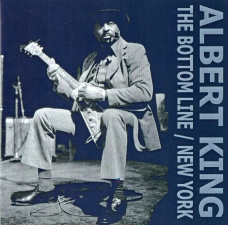 Albert King is truly a "King of the Blues," although he doesn't hold that title (B.B. does). Along with B.B. and Freddie King, Albert King
is one of the major influences on blues and rock guitar players.
Without him, modern guitar music would not sound as it does -- his style
has influenced both black and white blues players from Otis Rush and Robert Cray to Eric Clapton and Stevie Ray Vaughan. It's important to note that while almost all modern blues guitarists seldom play for long without falling into a B.B. King guitar cliché, Albert King never does -- he's had his own style and unique tone from the beginning. Albert King is truly a "King of the Blues," although he doesn't hold that title (B.B. does). Along with B.B. and Freddie King, Albert King
is one of the major influences on blues and rock guitar players.
Without him, modern guitar music would not sound as it does -- his style
has influenced both black and white blues players from Otis Rush and Robert Cray to Eric Clapton and Stevie Ray Vaughan. It's important to note that while almost all modern blues guitarists seldom play for long without falling into a B.B. King guitar cliché, Albert King never does -- he's had his own style and unique tone from the beginning.
Albert King plays guitar left-handed, without re-stringing the guitar from the right-handed setup; this "upside-down" playing accounts for his difference in tone, since he pulls down on the same strings that most players push up on when bending the blues notes. King's massive tone and totally unique way of squeezing bends out of a guitar string has had a major impact. Many young white guitarists -- especially rock & rollers -- have been influenced by King's playing, and many players who emulate his style may never have heard of Albert King, let alone heard his music. His style is immediately distinguishable from all other blues guitarists, and he's one of the most important blues guitarists to ever pick up the electric guitar. (by Stephen Thomas Erlewine) This is an excellent FM broadcast recording featuring Dickey Betts from The Allman Brothers Band ... hey ... let´s jam together ! Personnel: Albert King (guitar, vocals) Dickey Betty guitar on + a bunch of unknown musicians Tracklist: 01. Intro Jam (King) 5.19 02. Born Under A Bad Sign (Jones/Bell) 6.54 03. Oh Pretty Woman (King) 5.00 04. Blues Power (King) 12. 34 05. Jam (King/Betts) 12.28 06. Crosscut Saw/Closing Jam (Ford/King) 9.46 ARMU 0074 |
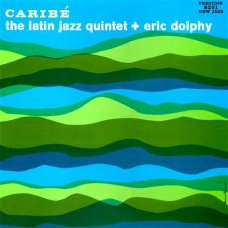 A masterful meeting of Eric Dolpy and The Latin Jazz Quintet -- a record
that shows a rare Latin side of Dolphy's talents, but one that's
totally great! A masterful meeting of Eric Dolpy and The Latin Jazz Quintet -- a record
that shows a rare Latin side of Dolphy's talents, but one that's
totally great! The core group here are the ensemble led by conga player Juan Amalbert with vibes, piano, bass, and percussion -- a group who helped push the Latin jazz style of earlier 50s work into much hipper territory during the 60s -- usually by adding in a reedman like Dolphy! Eric's blowing here on alto, flute, and bass clarinet -- showing a great sensitivity to the core groove of the record, but also managing to cut in these edgier moments that really open things up! The mix of vibes and Dolphy alone is worth the price of admission -- especially when heard in an "inside" way that's quite different than his later meeting with Bobby Hutcherson -- but the overall groove really holds the record together wonderfully, and makes it appealing for fans of both Latin and modern jazz! (by dusty groove) Recorded at Rudy Van Gelder Studio, Englewood Cliffs, NJ, August 19, 1960 Personnel: Gene Casey (piano) Eric Dolphy (saxophone, clarinet,flute) Bill Ellington (bass) Manny Ramos (drums, percussion) Carlie Simons (vibraphone) Tracklist: 01. Caribe (Casey) 10.05 02. Blues In 6/8 (Amalbert/Ricci) 5.45 03. First Bass Line (Casey) 4.05 04. Mambo Ricci (Amalbert/Ricci) 6.55 05. Spring Is Here (Rodgers/Hart) 5.06 06. Sunday Go Meetin' (Casey) 5.50 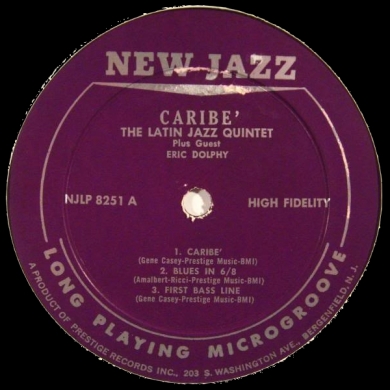 ARMU 0073 |
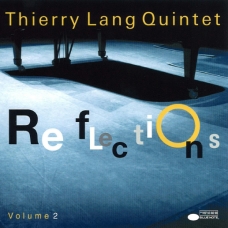 Reflection Volume 2 is the second album in a trilogy of albums released by Thierry Lang all comprising his original compositions. Reflection Volume 2 is the second album in a trilogy of albums released by Thierry Lang all comprising his original compositions.In Reflections 2 Paolo Fresu on trumpet and Andy Scherrer on saxophone join the trio which performed on Reflections 1. The result combines Thierry Lang´s traditional melodic jazz with some outstanding horn and saxophone playing. Most of Lang´s recordings were with bass and drums only. Here you can listen how good his music and his composition works in a Quintet. This album is another perfect example of first class European jazz. Personnel: Paolo Fresu (trumpet) Heiri Känzig (bass) Thierry Lang (piano) Andy Scherrer (saxophone) Peter Schmidlin (drums) Tracklist: 01. Choral (Lang) 6.55 02. Les Petits Yeux (Lang) 4.11 03. Un Petit Bleu (Lang) 3.40 04. Tender Awakening (Lang) 5.43 05. Tango de Rio (Lang) 5.24 06. One For Foutch (Lang) 5.28 07. Vendredi 18 (Lang) 6.10 08. Montmartre (Lang) 5.25 09. Bambou (Lang) 3.24 ARMU 0072 |
|
All of the tracks will be well known to ELP fans, but you will never have heard them like this before. Barbarian opens the album and sets the scene for what is to come; oh-so-heavy brooding and intricate bass from the greatly talented Dave Marks, coupled with blistering guitar from Steve Baxter and, of course, pounding, weaving mesmerising percussion from the master himself. Enemy God from "Works" is an even greater vehicle for Carl to display his mighty skills. LA Nights, which ELP fans will remember featuring Joe Walsh on "Works" has a slightly more jazzy/bluesy feel and contrasts nicely with the more gothic material here (and also has an almost miraculous guitar outro), whereas the seminal Tank is supremely evocative. Bullfrog is, for me, perhaps the only slightly disappointing track, as it comes over as less tight and more discordant than the rest and with no particularly enjoyable melody. It does, however have some scorchingly fast guitar work to redeem it. Then we have the album's highlights; Ginastera's Tocatta from the classic "Brain Salad Surgery" album is nothing short of a masterpiece here. This eerie and magnificent piece has never sounded better. Then Canario (probably the only good thing from the disappointing "Love Beach" album) gives the axeman par excellence a chance to display his ample skills and will have you agog with awe. Carl then rounds the album off with the drum solo to end all solos. Throughout this set, the musicianship is stunning - rarely will you find three musicians working so hard - each masters of their own art, but also coming together to create something far greater than the sum of its parts. This music is heavy enough, grungy enough, gothic enough and above all, inventive enough to appeal to far more than just ELP fans, so buy this truly great live album now and play it LOUD! Also, do try to catch the band live. I guarantee you won't be disappointed! (by Cartimand)
Personnel: Shaun Baxter (guitar) David Marks (bass) Carl Palmer (drums) Tracklist: 01. The Barbarian (Bartok) 5.54 02. The Enemy God Dances With The Black Spirits (Prokofiev) 3.07 03. L.A. Nights (Emerson/Palmer) 5.39 04. Tank (Emerson/Palmer) 4.42 05. Bullfrog (Aspery/Hodgkinson/Palmer) 4.40 06. Toccata (Ginastera) 8.00 07. Canario (Rodrigo/Vidre) 4.42 08. Drum Solo (Palmer) 6.22 ARMU 0071
|
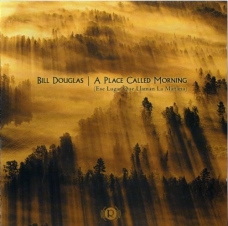 With his latest release, Bill Douglas once again defies all imagination
w/ this beautiful album. As in past recordings, he is again accompained on
several songs w/ the Ars Nova Singers. He is also accompained w/ various
instruments such as clarinet, cello, oboe, flute, violin, frame drum
and cymbals. Douglas himself plays piano, bassoon, and synthesizers. The
alternative flow of chorals & instrumentals is very soothing. If
you aren't familiar w/ the music of Bill Douglas, you are in for a treat
in purchasing this or any other of his wonderful cd's. In this
particular cd, he takes the poetry of W.B. Yeats, Emily Dickenson,
Rachel Faro and an excert from the Bibles' Song of Soloman and arranges
them into song. On previous other works, he has used a variety of other
poets. His music is so breathtaking and so beautiful, it is the ultimate
in serenity. If you are looking for some music to relax with, you've
come to the right place. But don't mistake this for 'some New Age stuff'
that comes and goes. It is certainly much more than that and you'd have
to hear it to truly understand and appreciate it. What incredible
God-given talent Douglas has! I know of no other artist who can take a
simple poem and arrange it musically, so that you feel overwhelmed with
it's beauty. What a masterful idea to combine poetry and music! I have a
chronic illness, so serentiy is a must in dealing w/ things. One way I
do that is through his music, which is my favorite to unwind & relax
with. This would make a really great gift for yourself or anyone in
your life, who is under alot of stress. Deep Peace is another good cd.
If you're looking for a compilation of some of his work, try Eternity's
Sunrise. Anytime I have one of his cd's on and someone happens to drop
by, they always comment on how beautiful it is and ask "Who is that!?!"
Also of interest are the poems themselves that Douglas has listed in the
liner notes. Nice to read them to yourself as they are being sung. A
Place Called Morning will soothe your mind and your spirit! Enjoy! With his latest release, Bill Douglas once again defies all imagination
w/ this beautiful album. As in past recordings, he is again accompained on
several songs w/ the Ars Nova Singers. He is also accompained w/ various
instruments such as clarinet, cello, oboe, flute, violin, frame drum
and cymbals. Douglas himself plays piano, bassoon, and synthesizers. The
alternative flow of chorals & instrumentals is very soothing. If
you aren't familiar w/ the music of Bill Douglas, you are in for a treat
in purchasing this or any other of his wonderful cd's. In this
particular cd, he takes the poetry of W.B. Yeats, Emily Dickenson,
Rachel Faro and an excert from the Bibles' Song of Soloman and arranges
them into song. On previous other works, he has used a variety of other
poets. His music is so breathtaking and so beautiful, it is the ultimate
in serenity. If you are looking for some music to relax with, you've
come to the right place. But don't mistake this for 'some New Age stuff'
that comes and goes. It is certainly much more than that and you'd have
to hear it to truly understand and appreciate it. What incredible
God-given talent Douglas has! I know of no other artist who can take a
simple poem and arrange it musically, so that you feel overwhelmed with
it's beauty. What a masterful idea to combine poetry and music! I have a
chronic illness, so serentiy is a must in dealing w/ things. One way I
do that is through his music, which is my favorite to unwind & relax
with. This would make a really great gift for yourself or anyone in
your life, who is under alot of stress. Deep Peace is another good cd.
If you're looking for a compilation of some of his work, try Eternity's
Sunrise. Anytime I have one of his cd's on and someone happens to drop
by, they always comment on how beautiful it is and ask "Who is that!?!"
Also of interest are the poems themselves that Douglas has listed in the
liner notes. Nice to read them to yourself as they are being sung. A
Place Called Morning will soothe your mind and your spirit! Enjoy! Personnel: Ty Burhoe (drums, tabla) Peter Cooper (oboe) Bill Douglas (bassoon, piano, synthesizer) Judith Glyde (cello) Bil Jackson (clarinet) Yumi Hwang (violin) Timothy Quigley (cymbals) Anne Stackpole-Cuellar (flute) + Ars Nova Singers (vocals) Tracklist: 01. Lake Isle Of Innisfree (Douglas) 4.29 02. Emerald Dawn (Douglas) 3.58 03. Forest Hymn (Douglas) 4.15 04. Morning Song (Douglas) 2.38 05. Tara (Choral Version) (Douglas) 4.21 06. Lovely Is The Rose (Douglas) 4.03 07. Golden Rain (Douglas) 3.51 08. Wings Of The Wind (Douglas) 2.21 09. Spectrum Of Violet (Douglas) 5.22 10. A Place Called Morning (Douglas) 5.04 11. Intermezzo (Douglas) 3.42 12. Sadness Of The Moon (Douglas) 3.56 13. Rise Up, My Love (Douglas) 4.08 ARMU 0070 |
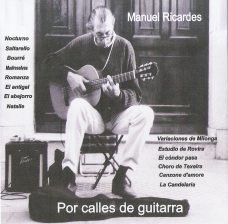 Manuel Ricardes is a more or less unknown spanish street musicians, who´s a real fantastic guitar player. Manuel Ricardes is a more or less unknown spanish street musicians, who´s a real fantastic guitar player. He has a very special feeling for tango music and every night he sit in a corner of a street a play his fantastic music. I met him during my last vactions in Bilbao/Spain. I was very impressed by his way of playing the acoustic guitar. His repertoire has many colors and it´s up to you to explore and enjoy these different styles of acoustic music. He told me about the record that it was recorded in 2003 and this is his music he played on the streets of spanish cities. Together with Beatriz Arbenoiz he although played in small music clubs all over Spain and try to keep the flame of tango music alive ! This entry is dedicated to the street musicians all over the world who gave us so much pleasure by their way to entertain us during our shopping tours through a city. 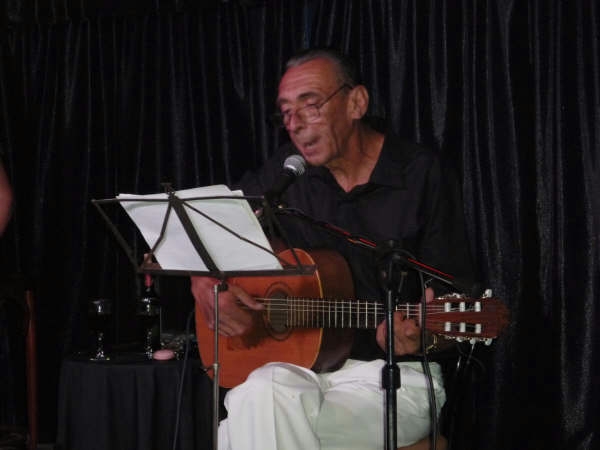 Personnel: Manuel Ricardes (guitar) Tracklist: 01. Bourre (Bach) 2.40 02. Canzone d´amore (Liebermann) 2.07 03. El abejorro (Pujol) 1.57 04. El antigal (Toro/Diaz) 3.45 05. El Condor Pasa (Traditional) 4.52 06. Estudio de rovira (Traditional) 2.54 07. La candelaria (Falú) 3.24 08. Madreselvas (Amadoro/Canaro) 2.36 09. Natalie (Moustaki) 1.31 10. Nocturno (Soulés) 3.40 11. Romanza (Soulés) 4.30 12. Saltarello (Traditional) 1.01 13. Choro de texeira (Traditional) 2.12 14. Variaciones de milonga (Falú) 4.09 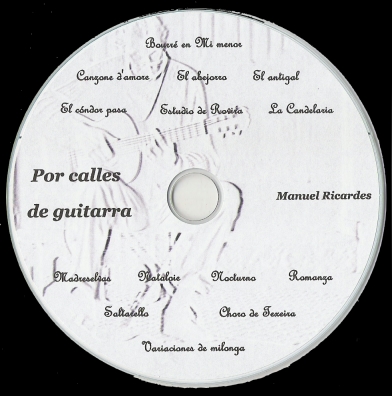 |
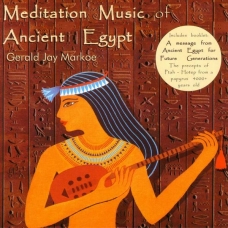 Gerald Jay Markoe studied classical music at both Juilliard (B.A.) and the Manhattan School of Music (M.A.). Since the early 1960s, Markoe
has studied meditation and astrology, and he specialized in translating
the positions of the planets into music, often recording custom tapes
based on a person's astrological sign. His first public album in 1988
was Music from the Pleiades, inspired by the famous poster of the
constellation. Markoe
formed his own music company, AstroMusic, to distribute his album, and
Music from the Pleiades quickly became a bestseller in the New Age
market. Gerald Jay Markoe studied classical music at both Juilliard (B.A.) and the Manhattan School of Music (M.A.). Since the early 1960s, Markoe
has studied meditation and astrology, and he specialized in translating
the positions of the planets into music, often recording custom tapes
based on a person's astrological sign. His first public album in 1988
was Music from the Pleiades, inspired by the famous poster of the
constellation. Markoe
formed his own music company, AstroMusic, to distribute his album, and
Music from the Pleiades quickly became a bestseller in the New Age
market.I've been on the quest for good sacred space/meditation music for
quite some time. I took a risk since, I really couldn't tell by the
sound bytes if I'd like it. I brought it home, lit some incense,
candles and got comfortable whilst I pressed 'play'. For me, it was
like magic. "At first, the metallic-stringed harp reminded me of
Japanese music, but as the album moves along, there's something not
quite Asian, African or Middle Eastern -- but definitely mystical. I
would think Markoe tapped into the "Eternal Now" so aptly put on the
first track of the CD. My small, cramped bedroom was turned into a
temple and I, its priestess. Well done! The great thing is that each
track can apply to a specific ritual or practice and their names reflect
that. The first song, I used for meditation (simply programmed to
repeat over and over). The next one is great for morning or "pre-dawn
devotion" as described and so on. Quite versatile and yet it doesn't
command one's attention, so you can easily meditate, sleep, do yoga or
journal to it without being mesmerized by the melodies. (by N. Mentor) Personnel: Gerald Jay Markoe (all instruments) Tracklist: 1. Entering The Eternal Now (Markoe) 7.14 2. Pre Dawn Meditation (Markoe) 7.24 3. Sacred Ceremony (Markoe) 4.57 4. Ancient Sunrise (Markoe) 7.15 5. Egyptian Shaman (Markoe) 7.46 6. Initiation (Markoe) 7.04 7. Sacred Movements (Markoe) 8.03 8. Egyptian Magic (Markoe) 6.12 9. Immortality (Markoe) 7.51 ARMU 0068 |
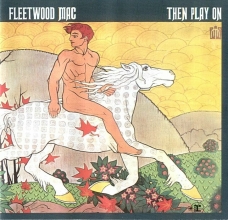 This Peter Green-led edition of the Mac
isn't just an important transition between their initial blues-based
incarnation and the mega-pop band they became, it's also their most
vital, exciting version. The addition of Danny Kirwan as second guitarist and songwriter foreshadows not only the soft-rock terrain of "Bare Trees" and "Kiln House" with Christine Perfect-McVie, but also predicts Rumours. That only pertains to roughly half of the also excellent material here, though; the rest is quintessential Green.
The immortal "Oh Well," with its hard-edged, thickly layered guitars
and chamber-like sections, is perhaps the band's most enduring
progressive composition. "Rattlesnake Shake" is another familiar number,
a down-and-dirty, even-paced funk, with clean, wall-of-sound guitars.
Choogling drums and Green's fiery improvisations power "Searching for Madge," perhaps Mac's
most inspired work save "Green Manalishi," and leads into an unlikely
symphonic interlude and the similar, lighter boogie "Fighting for
Madge." A hot Afro-Cuban rhythm with beautiful guitars from Kirwan and Green on "Coming Your Way" not only defines the Mac's sound, but the rock aesthetic of the day. Of the songs with Kirwan's
stamp on them, "Closing My Eyes" is a mysterious waltz love song;
haunting guitars approach surf music on the instrumental "My Dream";
while "Although the Sun Is Shining" is the ultimate pre-Rumours number someone should revisit. Blues roots still crop up on the spatial, loose, Hendrix-tinged
"Underway," the folky blues tale of a lesbian affair on "Like Crying,"
and the final outcry of the ever-poignant "Show Biz Blues," with Green moaning "do you really give a damn for me?" Then Play On is a reminder of how pervasive and powerful Green's influence was on Mac's
originality and individual stance beyond his involvement. Still highly
recommended and a must-buy after all these years, it remains their
magnum opus. This Peter Green-led edition of the Mac
isn't just an important transition between their initial blues-based
incarnation and the mega-pop band they became, it's also their most
vital, exciting version. The addition of Danny Kirwan as second guitarist and songwriter foreshadows not only the soft-rock terrain of "Bare Trees" and "Kiln House" with Christine Perfect-McVie, but also predicts Rumours. That only pertains to roughly half of the also excellent material here, though; the rest is quintessential Green.
The immortal "Oh Well," with its hard-edged, thickly layered guitars
and chamber-like sections, is perhaps the band's most enduring
progressive composition. "Rattlesnake Shake" is another familiar number,
a down-and-dirty, even-paced funk, with clean, wall-of-sound guitars.
Choogling drums and Green's fiery improvisations power "Searching for Madge," perhaps Mac's
most inspired work save "Green Manalishi," and leads into an unlikely
symphonic interlude and the similar, lighter boogie "Fighting for
Madge." A hot Afro-Cuban rhythm with beautiful guitars from Kirwan and Green on "Coming Your Way" not only defines the Mac's sound, but the rock aesthetic of the day. Of the songs with Kirwan's
stamp on them, "Closing My Eyes" is a mysterious waltz love song;
haunting guitars approach surf music on the instrumental "My Dream";
while "Although the Sun Is Shining" is the ultimate pre-Rumours number someone should revisit. Blues roots still crop up on the spatial, loose, Hendrix-tinged
"Underway," the folky blues tale of a lesbian affair on "Like Crying,"
and the final outcry of the ever-poignant "Show Biz Blues," with Green moaning "do you really give a damn for me?" Then Play On is a reminder of how pervasive and powerful Green's influence was on Mac's
originality and individual stance beyond his involvement. Still highly
recommended and a must-buy after all these years, it remains their
magnum opus. 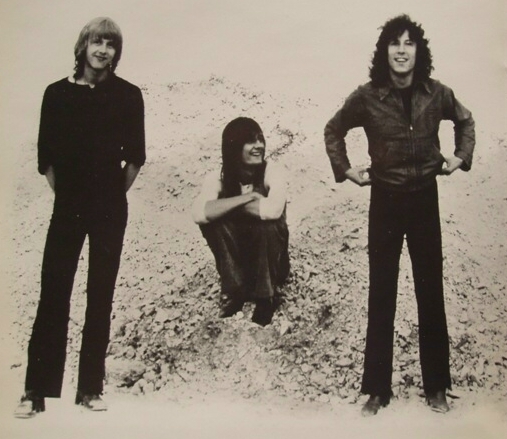 Personnel: Mick Fleetwood (drums) Peter Green (guitar, vocals) Danny Kirwan (guitar, vocals) John McVie (bass) Jeremy Spencer (guitar, vocals) + Big Walter Horton (harmonica) Tracklist: 01. Coming Your Way (Kirwan) 3.47 02. Closing My Eyes (Green) 4.50 03. Showbiz blues (Green) 3.50 04. My Dream (Kirwan) 3.30 05. Underway (Green) 2.51 06. Oh Well (Green) 8.56 07. Although The Sun Is Shining (Kirwan) 2.31 08. Rattlesnake Shake (Green) 3.32 09. Searching For Madge (McVie) 6.56 10. Fighting For Madge (Fleetwood) 2.45 11. When You Say (Kirwan) 4.22 12. Like Crying Like Dying (Kirwan) 2.21 13. Before The Beginning (Green) 3.28 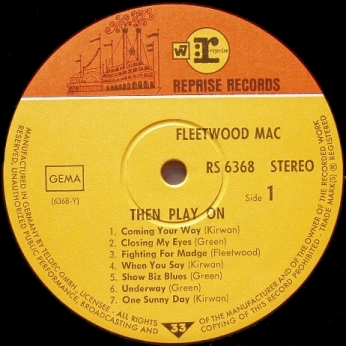 ARMU 0067 |
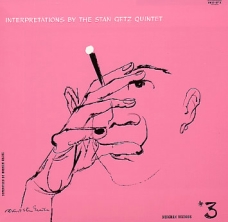 When the first two "Interpretations" albums by the Stan Getz quintet
proved so successful, the next step obviously was to follow the pattern
and this — as you must have gathered by now — was indeed done. What gave
the first two "Interpretations" their standout quality, most critics
agreed, was the unity of the five musicians as well as the topflight
musicianship of all concerned. There is especially solid rapporti
between the two featured soloists —Stan Getz, tenor saxophone, and Bob
Brookmeyer, trombone. and one of the reasons for this could be the year
which Brookmeyer spent with the Getz unit in 1953. This was a highly
profitable year for both in terms of musical growth. ("The only way you
learn," Getz once said, "is by playing with the best — so that there's
always two challenges; first, your own inner challenge and then the
fecling of being spurred by men who swing in your own outfit.") Getz, of
course, has long been regarded as one of the foremost tenor men in
modero jazz, a suspicion which first took hold strongly when he (with
Zoot Sims, Serge Chaloff and Herbie Steward) provlded Woody Herman with
the "Four Brothers" round. It was Getz whose solo gave much meaning to
Herman's recording of the Ralph Burns composition, "Early Autumn". Since
then he has been occupied largely with leading his own group, in most
cases a quintet. When the first two "Interpretations" albums by the Stan Getz quintet
proved so successful, the next step obviously was to follow the pattern
and this — as you must have gathered by now — was indeed done. What gave
the first two "Interpretations" their standout quality, most critics
agreed, was the unity of the five musicians as well as the topflight
musicianship of all concerned. There is especially solid rapporti
between the two featured soloists —Stan Getz, tenor saxophone, and Bob
Brookmeyer, trombone. and one of the reasons for this could be the year
which Brookmeyer spent with the Getz unit in 1953. This was a highly
profitable year for both in terms of musical growth. ("The only way you
learn," Getz once said, "is by playing with the best — so that there's
always two challenges; first, your own inner challenge and then the
fecling of being spurred by men who swing in your own outfit.") Getz, of
course, has long been regarded as one of the foremost tenor men in
modero jazz, a suspicion which first took hold strongly when he (with
Zoot Sims, Serge Chaloff and Herbie Steward) provlded Woody Herman with
the "Four Brothers" round. It was Getz whose solo gave much meaning to
Herman's recording of the Ralph Burns composition, "Early Autumn". Since
then he has been occupied largely with leading his own group, in most
cases a quintet.Bob Brookmeyer, who incidentally studied piano at Kansas City Conservatory, is one of the few and also just about the finest valve trombonists around today. He has played with such groups as Gerry Mulligan's and Terry Gibbs' as well as tours (as a pianist) with Tex Beneke, Ray McKinley and Louis Prima. A man of extraordinarily wide range of expression, Brookmeyer has an equally good reputation as an arranger and composer. (One of Brookmeyer's selections, "Oh, Sane Snavely" is included in this album.) Pianist Johnny Williams, out of Windsor, Vt., has been a member of the Getz unit in addition to playing with Charlie Barnet's band. An Army Air Forces veteran of World War II, drummer Frank Isola has also played with the Mulligan and Getz groups in the past, while the quintets bassist, Teddy Kotick, has largely confined his work to the East, including appearances with the great alto sax artist, Charlie "Bird" Parker. For no calculated reason, the selections on the A side are taken from three separate eran.— "The Varsity Drag", to begin with, is a tune associateti with the ebullient 1920s; Duke Ellington's "lt Don't Mean a Thing If It Ain't Got That Swing" is, of course, from the Swing Era—the 1930s. "Give Me the Simple Life" was popular in the mid-1940s, shortly alter the end of the war when the simple lite was every ex-GI's happy hope. The B side includes an evergreen standard, "I´ll Remember April" along with the aforementioned Brookmeyer original. Los Angeles CA, July 30, 1953 and November 4, 1954 Personnel: Stan Getz, tenor saxophone; Bob Brookmeyer, valve trombone; John Williams, piano; Bill Anthony or Teddy Kotick, bass; Frank Isola, drums Tracklist: 01. It Don´t Mean A Thing (If It Ain´t Got That Swing) (Ellington) 6.22 02. The Varsity Drag (Henderson) 7.01 03. Give Me The Simple Life (Ruby/Bloom) 5.59 04. I´ll Remember April (DePaul) 11.01 05. Oh, Shane Snavely (Brookmeyer) 6.16 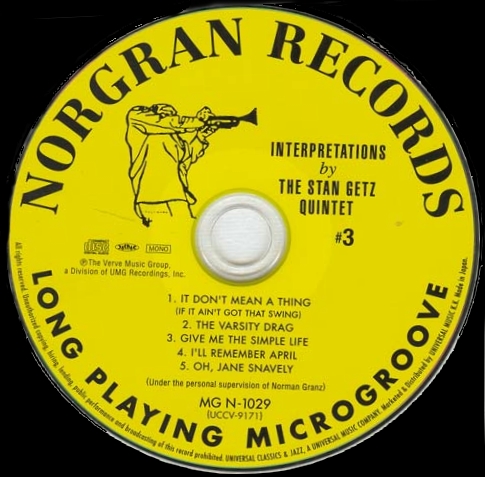 ARMU 0066 |
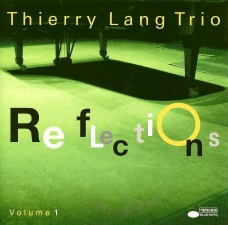 Thierry Lang (born 1956) is a Swiss composer and jazz pianist. Thierry Lang (born 1956) is a Swiss composer and jazz pianist.He teaches piano and composition at the University of Lausanne and University of Bern in Switzerland. He has recorded jazz music discs with Blue Note Records, among others. In 2008 Lang was awarded a Doctor Honoris Causa from the European University. In 2003 recorded 25 tracks of original compositions, working on serveral days in three seperate sessions at the Radio Suisse Romandce Studios in Switzerland. These tracks will comprise three seperate albums, the first of which is Reflections Volume 1. Thierry Lang is without any doubts one of the finest European jazz musicians of our time. His style is very gentle and full of emotions 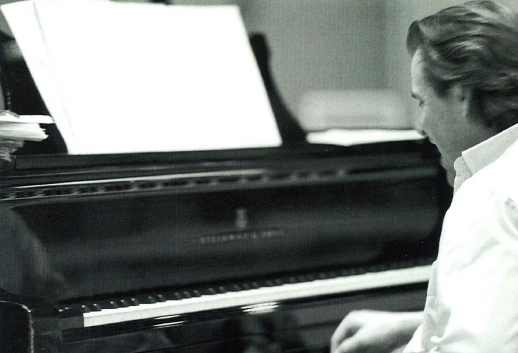 Personnel: Heiri Känzig (bass) Thierry Lang (piano) Peter Schmidlin (drums) Tracklist: 01. Le Sablier (Lang) 5.48 02. Three Lines (Lang) 4.50 03. Wounds (Lang) 5.00 04. Private Garden (Lang) 5.57 05. Waiting For A Wave (Lang) 5.25 06. Moon Princess (Lang) 6.21 07. Your Notes (Lang) 4.58 08. Nostalgie (Lang) 6.08 |
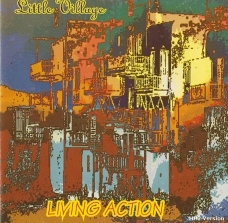 For those Nick Lowe fans who enjoyed Rockpile, here’s Nick Lowe with
Ry Cooder, John Hiatt and Jim Keltner - a supergroup collectively known
as Little Village. For those Nick Lowe fans who enjoyed Rockpile, here’s Nick Lowe with
Ry Cooder, John Hiatt and Jim Keltner - a supergroup collectively known
as Little Village.
One of the musical highlights of the ’80s was John Hiatt’s Bring The
Family, the 1987 album which, sort of, reintroduced the veteran
singer-songwriter to a new generation of fans. It was also an exciting
album because of its lineup. For the hit song, Thing Called Love, Hiatt said: "I had everything when we went to record it, but Nick Lowe came up with that riff - ba dir di dir dit - which is the icing on the cake. As soon as he started playing that on the bass, Ry started playing it on the guitar, and he was laughing, ‘Oh, that’s great.’ And that was pretty much the arrangement.” The easy way the individual members clicked was what led to Little Village in 1992 but the group’s one and only album did not take off though the classic guitar rock sound certainly hasn’t dated. [One can also guess that the "supergroup” format meant that the focus and the pressure wasn’t directed solely at any one person, certainly each member very much a star in his own right.] With all the reunions these days, one wonders if Little Village would ever consider going on the road again. Recorded live at the Fox Warfield Theatre, Personnel: Tracklist: |
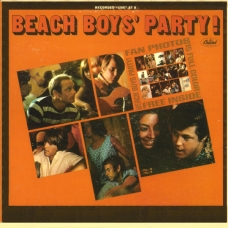 Capitol, which had already released ten Beach Boys
albums in three years, was bugging the group for product that it could
release in time for the 1965 Christmas season. To buy time while Brian Wilson began conceiving the Pet Sounds
masterpiece, the group issued a set of covers, mostly of the '50s rock
and R&B they had listened to as schoolboys. Capitol, which had already released ten Beach Boys
albums in three years, was bugging the group for product that it could
release in time for the 1965 Christmas season. To buy time while Brian Wilson began conceiving the Pet Sounds
masterpiece, the group issued a set of covers, mostly of the '50s rock
and R&B they had listened to as schoolboys. Packaged as if it had been recorded at an actual party, it was in fact recorded in the studio, with friends and romantic partners adding sounds and vocals to create an informal atmosphere. With the exception of a bass guitar, all the instruments were acoustic; the acoustic guitar-and-bongo arrangements, in fact, give this a hootenanny campfire feel. In recent years, this album has gone up a few notches in critical esteem, praised for its loose, casual feel and insight into the group's influences. Realistically, though, its present-day appeal lies mostly with dedicated fans of the group, as fun and engaging as it is. Others will find the material shopworn in places, and the presentation too corny. It does have the massive hit "Barbara Ann," which actually features Dean Torrence (of Jan & Dean) on much of the lead vocals; other highlights include "Mountain of Love," an unexpected version of "The Times They Are a-Changin'," and three Beatles covers. Personnel: Al Jardine (guitar, vocals) Bruce Johnstone (bass, keyboards, vocals) Mike Love (vocals) Carl Wilson (guitar, vocals) Dennis Wilson (drums) Tracklist: 01. Hully Gully (Goldsmith/Smith) 2.22 02. I Should Have Known Better (Lennon/McCartney) 2.23 03. Tell My Why (Lennon/McCartney) 1.39 04. Papa-Oom-Mow-Mow (Frazier/J.Harris/S.Harris/White/T.Wilson/Wilson Jr.) 2.12 05. Mountain Of Love (Dorman) 2.47 06. You´ve Got To Hide Your Love Away (Lennon/McCartney) 2.47 07. Davoted To You (Bryant) 1.19 08. Alley Oop (Frazier) 2.53 09. There´s No Other (Like My Baby) 3.02 10. Medley: I Get Around/Little Deuce Cup (Christian/Wilson) 3.31 11. The Times They Are A-Changin´ (Dylan) 2.13 12. Barbara Ann (Fassert) 2.53 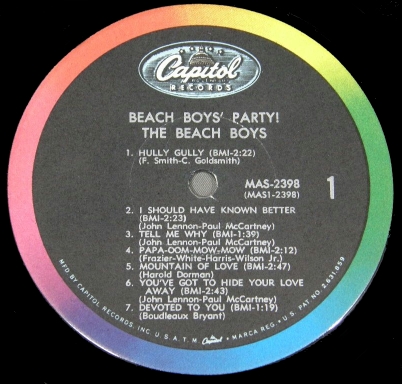 ARMU 0063 |
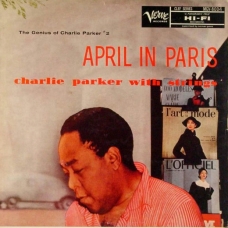 Charlie Parker's
digital discography is peppered with collections using the words "April
in Paris" as part of the title. Released in 2000, Blue Night's budget
edition contains only about 45 minutes of music extracted from Bird's
Verve catalog, the body of works that map much of his progress during
the last few years of his short life. The 12 recordings that make up
this little taste were made under the supervision of Norman Granz between November 30, 1949 and March 31, 1954 and feature such brilliant improvisers as Coleman Hawkins, Dizzy Gillespie, Thelonious Monk, Miles Davis, Red Rodney, Max Roach, and Roy Haynes. Charles Parker is also backed by orchestras operating under the leadership of Joe Lippman, Jimmy Carroll, and Gil Evans. While literally dozens of better Charlie Parker
samplers are available, if you have bumped into a copy of Blue Night's
April in Paris you should probably snap it up so as to have ready access
to a pediatric dose of Bird on Verve. (by arwulf arwulf) Charlie Parker's
digital discography is peppered with collections using the words "April
in Paris" as part of the title. Released in 2000, Blue Night's budget
edition contains only about 45 minutes of music extracted from Bird's
Verve catalog, the body of works that map much of his progress during
the last few years of his short life. The 12 recordings that make up
this little taste were made under the supervision of Norman Granz between November 30, 1949 and March 31, 1954 and feature such brilliant improvisers as Coleman Hawkins, Dizzy Gillespie, Thelonious Monk, Miles Davis, Red Rodney, Max Roach, and Roy Haynes. Charles Parker is also backed by orchestras operating under the leadership of Joe Lippman, Jimmy Carroll, and Gil Evans. While literally dozens of better Charlie Parker
samplers are available, if you have bumped into a copy of Blue Night's
April in Paris you should probably snap it up so as to have ready access
to a pediatric dose of Bird on Verve. (by arwulf arwulf)The genius of Bird and strings is hard to describe – an edgey aproach that really goes far past most other "jazz with strings" projects, not a ballad-driven one, but a tensely strained one that brings out some of Parker's best soloing, almost in a moody soundtrack-type way. The tracks are a lot freer and less bop-driven than some of Bird's normal work, and it's incredible to hear him soloing with such complexity – even more proof of the genius he clearly exhibited in relation to his contemporaries. (by dusty groove) Personnel: Frank Brieff (viola) Eddie Brown (oboe) Maurice Brown (cello) Ray Brown (bass) Sam Caplan (violin) Stan Freeman (piano) Bronislaw Gimpel (violin) Max Hollander (violin) Howard Kay violin) Harry Melnikoff (violin) Charlie Parker (saxophone) Bernie Leighton (piano) Milton Lomask (violin) Frank Miller (cello) Mitch Miller (oboe) Verley Mills (harp) Sam Rand (violin) Myor Rosen (harp) Buddy Rich (drums) Joseph Singer (french horn) Zelly Smirnoff (violin) Isadore Zir (viola) Arranged & conducted by Jimmy Carroll & Joe Lipman Tracklist: 01. April In Paris (Duke/Harburg) 3.09 02. Summertime (Gershwin) 2.49 03. If I Should Lose You (Rainger/Robin) 2.49 04. I Didn´t Know What Time It Was (Hart/Rodgers) 3.15 05. Everything Happens To Me (Adair/Carmichael/Dennis/Mercer) 3.10 06. Just Friends (Klenner/Lewis) 3.32 07. They Can´t Take That Away From Me (Gershwin) 3.21 08. Out Of Nowhere (Green/Heyman) 3.08 09. East Of The Sun (And West Of The Moon) (Bowman) 3.42 10. Easy To Love (Porter) 3.31 11. I´m In The Mood For Love (Fields/McHugh) 3.35 12. I´ll Remember April (DePaul/Johnston/Raye) 3.06 + 13. Dancing In The Dark (Dietz/Schwartz) 3.13 14. Laura (Mercer/Raksin) 2.59 15. Autumn In New York (Duke) 3.31 16. Stella By Starlight (Washington/Young) 2.57 |
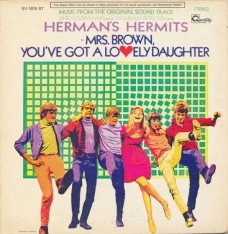 At the very peak of
the British Invasion, few bands were as universally embraced as Herman's
Hermits. Cheeky, cute, and capable of pumping out a piece of pure pop
bliss now and again, they represented the clever, commercial phase of
the movement. At the very peak of
the British Invasion, few bands were as universally embraced as Herman's
Hermits. Cheeky, cute, and capable of pumping out a piece of pure pop
bliss now and again, they represented the clever, commercial phase of
the movement. While The Beatles were experimenting with new sounds and structures and The Rolling Stones were perfecting their blues-based cock rock, Peter Noone and the boys rode a wave of sunny sentiment that would equally illuminate such other ancillary acts as Freddy and the Dreamers, Peter and Gordon, and Chad and Jeremy. As with many music phenomenons, movies were seen as a quick way to lay claim to more international attention. After all, the Fab Four more or less invented the idea with A Hard Day's Night (don't tell that to UK idol Cliff Richards, though). After a couple of cameos and a surreal space race comedy (Hang On), one of their most famous songs was used as the basis for a buoyant British class comedy. At the time, Mrs. Brown You've Got a Lovely Daughter must have played like a subversive slice of Manchester madness. Today, it's a curio cast in an equally confusing light. And this is the soundtrack ... beat goes easy listening ! Personnel: Karl Green (bass, vocals) Keith Hopwood (guitar, vocals) Derek Leckenby (guitar, vocals) Peter Noone (vocals) Barry Whitwam (drums) Tracklist: 01. It´s Nice To Be Out InThe Morning (Gouldman) 2.26 02. Holiday Inn (Stephens) 2.22 03. Ooh, She´s Done It Again (Gouldman) 2.16 04. There´s A Kind Of Hush (All Over The World) (Reed/Stephens) 2.34 05. Lemon And Lime (Gouldman) 2.44 06. The Most Beautiful Thing In My Life (Young) 1.54 07. Daisy Chain, Pt. 1 (Green/Hopwood/Leckenby/Noone) 2.50 08. Daisy Chain, Pt. 2 (Green/Hopwood/Leckenby/Noone) 1.58 09. The World Is For The Young (Gouldman) 2.44 10. Mr.s Brown You´ve Got A Lovely Daughter (Peacock) 2.48 11. Regardez-Moi (Young) 3.21 12. Years May Come, Years May Go (Fishman/Popp) 3.38 13. Smile Please (King/Most/Noone) 2.42 14. Bet Yer Life I Do (Brown/wilson) 2.37 15. Searching For The Southern Sun (Green/Hopwood/Leckenby) 2.41 16. Lady Barbara (Bigazzi/Wilson) 3.43 17. Don´t Just Stand There (King/Most/Noone/Spiro) 3.43 18. Big Man (Belland/Larson) 2.20 19. Wings Of Love (Campbell/Spyropoulos) 3.18 20. Mum And Dad (Callander) 2.01 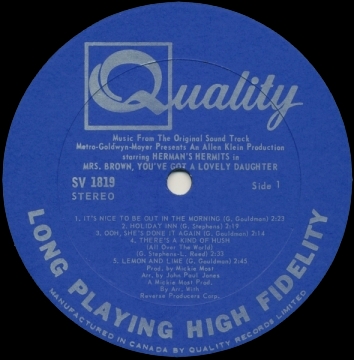 ARMU 0061 |
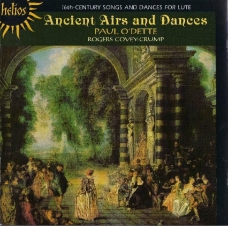 Time was when the majority of records of late
medieval and renaissance music were made up of social music and above
all dances; it was almost an inevitable stage in the creation of a taste
for the music of the period that it was initially represented by an
essentially unrepresentative aspect of its soundworld, almost as if the
eighteenth century had been portrayed with Mozart's German Dances to the
fore but without the opera and the piano concerto. Now all that has
changed as more and more of the major works are recorded, but there is
still a place for sensitively-performed selections of the lighter
repertories, and the present record is an attractive example. Time was when the majority of records of late
medieval and renaissance music were made up of social music and above
all dances; it was almost an inevitable stage in the creation of a taste
for the music of the period that it was initially represented by an
essentially unrepresentative aspect of its soundworld, almost as if the
eighteenth century had been portrayed with Mozart's German Dances to the
fore but without the opera and the piano concerto. Now all that has
changed as more and more of the major works are recorded, but there is
still a place for sensitively-performed selections of the lighter
repertories, and the present record is an attractive example.The inspiration for the selection itself is Respighi's three popular orchestral suites called Ancient Airs and Dances, and Paul O'Dette has carried out an interesting piece of detective work in tracking down Respighi's sources (the composer himself disguised them) to the transcriptions of the pioneering Italian musicologist Oscar Chilesotti. One of the most attractive features of the performances themselves is their varied timbre; O'Dette himself plays both the eight- and ten-course lute, archlute and even (on the final track) a baroque guitar, and Nigel North adds a bass lute to Besard's Bransles de village. The readings of these instrumental pieces are neatly tailored and graciously shaped whilst still retaining that flexibility of rhythm and tactus that are the hallmark of the style. Then, in addition, there is Rogers Covey-Crump's gentle rendering of Boësset's Divine Amaryllis, and above all his quietly elegiac account of six airs de cour by Jean-Baptiste Besard. The lightness of his tone is well suited to the mood of these pieces, and the carefully-considered improvised embellishment is a nice and appropriate touch. Finally, both violin and viol make a brief appearance in a single track, Laura soave based on the famous Ball del Granduca from the 1589 Florentine intermedi, one of the most exploited bass patterns of its time. All in all this is a delightful record, sensitively recorded to capture all the immediacy of these simple, domestic pieces. (by Gramophone, June 1988)
Personnel: Rogers Covey-Crump (vocals) Paul O´Dette (lute, guitar) John Holloway (violin) Nigel North (bass lute) Christel Thielmann (bass Viola da gamba) Tracklist: 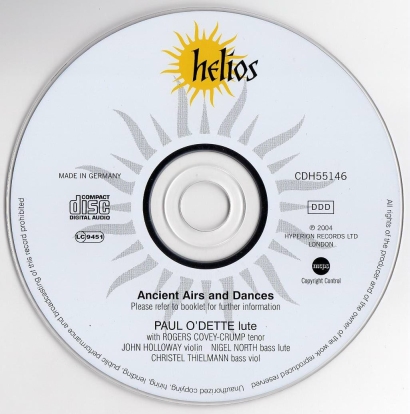 ARMU 0060 |
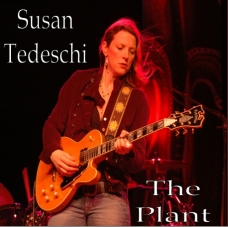 Guitarist, singer, and songwriter Susan Tedeschi is part of the new generation of blues musicians looking for ways to keep the form exciting, vital, and evolving. Tedeschi's
live shows are by no means straight-ahead urban blues. Instead, she
freely mixes classic R&B, blues ,and her own gospel and
blues-flavored originals into her sets. She's a young, sassy blues
belter with musical sensibilities that belie her years. Guitarist, singer, and songwriter Susan Tedeschi is part of the new generation of blues musicians looking for ways to keep the form exciting, vital, and evolving. Tedeschi's
live shows are by no means straight-ahead urban blues. Instead, she
freely mixes classic R&B, blues ,and her own gospel and
blues-flavored originals into her sets. She's a young, sassy blues
belter with musical sensibilities that belie her years.
Tedeschi began singing when she was four and already active in local choir and theater in Norwell, a southern suburb of Boston. At 13, she began singing with local bands and continued her music studies at Berklee, honing her guitar skills and also joining the Reverence Gospel Ensemble. She started the first incarnation of her blues band upon graduating in 1991. The Susan Tedeschi Band's second album, Just Won't Burn, was released on the Boston-based Tone-Cool Records in early 1998. This wonderful radio-show was made to promote this album; it´s a beautiful possbility to discover this lady of the Blues. Norm DeMoura (bass) Tim Gearan (slide-guitar) Tom Hambridge (drums, background vocals) Susan Tedeschi (guitar, vocals) Tom West (keyboards) Tracklist: 01. Introduction 0.44 02. Rock Me Right (Hambridge) 4.56 03. You Need To Be With Me (Tedeschi) 4.44 04. Mama, He Treats Your Daughter Mean (Lance/Singleton/Wallace) 7.50 05. Friar's Point (Hambridge/Tedeschi) 5.15 06. Little By Little (Wells) 6.43 07. Just Won't Burn (Tedeschi) 7.43 08. Angel From Montgomery (Prine) 5.25 09. It Hurts So Bad (Hambridge) 5.54 10. Outro 0.59 ARMU 0059 |
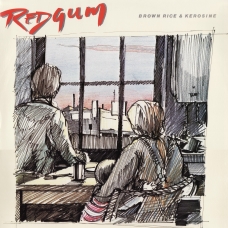 1981 was the year Redgum went full time as the band members gave up their day jobs to pursue the band. It was also the year that their 3rd Lp was recorded and released. 1981 was the year Redgum went full time as the band members gave up their day jobs to pursue the band. It was also the year that their 3rd Lp was recorded and released.I remember hearing about this during an interview on 4zzz, the album was just released it was a promotional thing and they played the single "100 years on". I still love the song, a modern take on "Waltzing Matilda"it takes s to the heart of John Schumann's songwriting genius, his ability to tell a yarn. This is my favorite Redgum album, its the songs that do it and sure theres a bit on clumsy left rhetoric, but I can forgive it, the brilliance in some songs more than makes up.The sound is less folk like, introducing things like synthesizers, yet not sounding commercial. The epic "Where you gonna run to now" exposes Schumann's fears for the future and a strong environmental stance that was unheard of at the time And "The Federal Two Ring Circus" is and very funny take on our political system, but "Your OS Trip" seems a little too bitter. The truly greatest track however is the Schumann penned "The Last Frontier." Here he captures a young man pilgrimage to the heart of Australia. 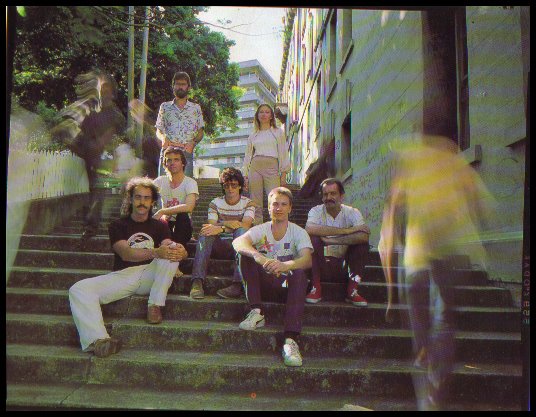 Personnel: Michael Atkinson (guitars, keyboards, vocals) Trevor Courtney (drums, percussion) David Flett (bass) John Schumann (vocals, guitar) Chris Timms (vocals, violin) Verity Truman (vocals, flute, tin whistle, saxophone) + Mark Gillespie (guitar on 09) Tracklist: 01. 100 Years On (Schuhmann) 3.51 02. Lear Jets Over Kulgera (Atkinson) 3.26 03. Caught In The Act (Atkinson/Courtney/Flett/Schumann/Timms/Truman) 2.29 04. Yarralumla Wine (Atkinson) 2.31 05. Where Ya Gonna Run To (Schuhmann) 4.06 06. Brown Rice And Kerosene (Atkinson) 2.23 07. The Federal Two-Ring Circus (Atkinson) 3.43 08. Your O.S Trip (Atkinson) 4.47 09. The Last Frontier (Schuhmann) 4.43 10. Paramatta Gaol 1843 (Atkinson/Truman) 4.06 + 11. I Was Only 19 (A Walk In The Light Green) (bonus track; radio broadcast) (Schumann) 5.54 ARMU 0058 |
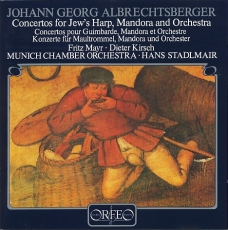 Yes, yes, it's a bizarre choice of instruments. But despite what one
reviewer said, these works are sweetly written and very pleasant.
Albrechtsberger is obscure as a composer, but well remembered as an
influential theorist. He also served as a music teacher to Beethoven
when he grew frustrated with Haydn, who had not the time to correct his
work. These works are in the galant or rococo style, somewhere between
baroque and classical (but closer to classical). These works must be
understood in the context of the galant period. At that time, folk
instruments had become very fashionable, and some composers became
interested in them, such as Leopold Mozart, who wrote for the alp horn,
hurdy-gurdy, bagpipes, and so on. The mandora, a type of lute, has a
good sound, and the jew's harp is surprisingly melodious considering the
fact that the fundamental pitch does not vary. All in all, this is very
pleasant music, and even the non-musical will be entertained by the
sheer quirkiness of it.
(by R. Folk) Yes, yes, it's a bizarre choice of instruments. But despite what one
reviewer said, these works are sweetly written and very pleasant.
Albrechtsberger is obscure as a composer, but well remembered as an
influential theorist. He also served as a music teacher to Beethoven
when he grew frustrated with Haydn, who had not the time to correct his
work. These works are in the galant or rococo style, somewhere between
baroque and classical (but closer to classical). These works must be
understood in the context of the galant period. At that time, folk
instruments had become very fashionable, and some composers became
interested in them, such as Leopold Mozart, who wrote for the alp horn,
hurdy-gurdy, bagpipes, and so on. The mandora, a type of lute, has a
good sound, and the jew's harp is surprisingly melodious considering the
fact that the fundamental pitch does not vary. All in all, this is very
pleasant music, and even the non-musical will be entertained by the
sheer quirkiness of it.
(by R. Folk)Really, it has to be heard to be believed. Recordings of the Jew's Harp Concerto have been amusing music students at parties for years. It is one those oddities that one will find it hard to resist adding to one's collection. I recommend this with many caveats. There is a good reason why Albrechtsberger is a virtual unknown (if not for the Jew's Harp Concerto, he would be completely off the musical radar), and the novelty of these pieces is really the only thing that can recommend this recording. However, you probably already had guessed that. (by chefdevergue) Johann Georg Albrechtsberger: February 3, 1736 - March 7, 1809 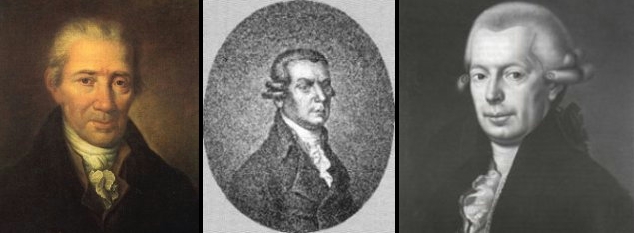 Personnel: Fritz Mayr (jews harp) Dieter Kirsch (mandora) + Munich Chamber Orchestra conducted by Hans Stadlmair Tracklist: Concerto for Jews Harp, Mandora & Orchestra in E major: 01. Tempo moderato (Albrechtsberger) 6.38 02. Adagio (Albrechtsberger) 7.17. 03. Finale - Tempo de menuetto (Albrechtsberger) 6.34 Concerto for Jews Harp,Mandora & Orchestra in F major: 04. Allegro moderato (Albrechtsberger) 4.40 05. Andante (Albrechtsberger) 6.38 06. Menuetto. Moderato (Albrechtsberger) 3.58 07. Finale - Allegro molto (Albrechtsberger) 3.08 ARMU 0057 |
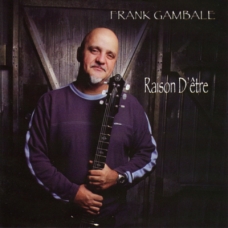 One has to give high marks to guitarist and composer Frank Gambale. While an unabashed jazz-rock fusioneer, Gambale has always made music that was as interested in lyricism and inventive harmonic interplay as complex riffs and arpeggios. One has to give high marks to guitarist and composer Frank Gambale. While an unabashed jazz-rock fusioneer, Gambale has always made music that was as interested in lyricism and inventive harmonic interplay as complex riffs and arpeggios. Gambale is a composer of the first order and, as he has gotten older, his writing style has become increasingly engaging melodically; his sense of harmonic architecture is full of shapes and colors and is weighted by use of the imagination that indulges flights of whimsy. He also understands on a cellular level the importance of ensemble communication. Accompanied by Billy Cobham on drums and either Ric Fierabracci or Steve Billman on bass, Gambale offers listeners 12 new cuts that range from a near singing quality ("Foreign Country," "Bittersweet," "Table for One") to a harder-edged jazz full of knotty yet emotionally charged and conscious improvisation ("May the Fourths Be With You," "Smug," "Complex Emotions"). Certainly this is a guitar player's record, but it is one that has its roots in aesthetic beauty rather than in mechanics. Personnel: Steve Billman (bass) Billy Cobham (drums, percussion) Ric Fierabracci (bass) Frank Gambale (guitar) Tracklist: 01. Foreign Country (Gambale) 6.56 02. Cachination (Gambale) 5.52 03. Bittersweet (Gambale) 8.17 04. Table For One (Gambale) 6.42 05. Nouveau Vignettes: Debut Solo (Gambale) 1.25 06. Nouveau Vignettes: Melodique (Gambale) 1.10 07. Nouveau Vignettes: Two Minutes B.C. (Gambale) 1.57 08. Ka´anapali (Gambale) 6.37 09. May The Fourths Be With You (Gambale) 7.03 10. Monkey Wrench (Gambale) 5.51 11. Smug (Gambale) 6.25 12. Complex Emotions (Gambale) 10.20 |
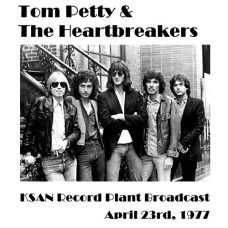 Upon the release of their first album in the late '70s, Tom Petty & the Heartbreakers
were shoehorned into the punk/new wave movement by some observers who
picked up on the tough, vibrant energy of the group's blend of Byrds riffs and Stonesy
swagger. In a way, the categorization made sense. Compared to the heavy
metal and art rock that dominated mid-'70s guitar rock, the Heartbreakers' bracing return to roots was nearly as unexpected as the crashing chords of the Clash.
As time progressed, it became clear that the band didn't break from
tradition like their punk contemporaries. Instead, they celebrated it,
culling the best parts of the British Invasion, American garage rock,
and Dylanesque singer/songwriters to create a distinctively American hybrid that recalled the past without being indebted to it. Upon the release of their first album in the late '70s, Tom Petty & the Heartbreakers
were shoehorned into the punk/new wave movement by some observers who
picked up on the tough, vibrant energy of the group's blend of Byrds riffs and Stonesy
swagger. In a way, the categorization made sense. Compared to the heavy
metal and art rock that dominated mid-'70s guitar rock, the Heartbreakers' bracing return to roots was nearly as unexpected as the crashing chords of the Clash.
As time progressed, it became clear that the band didn't break from
tradition like their punk contemporaries. Instead, they celebrated it,
culling the best parts of the British Invasion, American garage rock,
and Dylanesque singer/songwriters to create a distinctively American hybrid that recalled the past without being indebted to it.
The Heartbreakers were a tight, muscular, and versatile backing band that provided the proper support for Petty's songs, which cataloged a series of middle-class losers and dreamers. While his slurred, nasal voice may have recalled Dylan and Roger McGuinn, Petty's songwriting was lean and direct, recalling the simple, unadorned style of Neil Young. This is one their earliest radio-shows and this is the chance to hear young Tom Petty at the start of his career ... enjoy it ! Recorded live at the Record Plant Recording Studios, San Francisco, April 23, 1977 Personnel: Rain Blair (bass) Mike Campbell (guitar) Stan Lynch (drums) Tom Petty (guitar, vocals) Benmont Tench (keyboards) Tracklist: 01. Surrender (Petty) 2.58 02. Band Intros/American Girl (Petty) 4.45 03, Fooled Again (I Don't Like it) (Petty) 6.24 04. I Need To Know (Petty) 2.44 05. Strangered In The Night (Petty) 4.23 06. Dog On The Run (Campbell) 10.25 07. Route 66 (Troup) 4.11 ARMU 0055 |
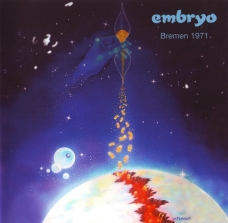 This is an excellent early live recording from this group, done around the time of its second album, Embryo's Rache,
and with all tracks taken from that record. This is an excellent early live recording from this group, done around the time of its second album, Embryo's Rache,
and with all tracks taken from that record. Its a fascinating juxtaposition between the psychedelic jazz-rock of early embryonic Embryo and the embrace of ethnic music from around the world that characterized subsequent Embryo projects. It starts off with some tribal drumming, and moves onward into complex rhythms and lots of sax and flute solos and even a violin here and there. Because of Embryo's ever-changing roster, the lineup includes only three of seven musicians from Embryo's Rache, recorded in the same year as Bremen 1971, and with no keyboards, the dynamics of the live versions of the pieces are quite different. The first three cuts, each about ten minutes in length, segue seamlessly together without a pause, while the politically charged "Spain Yes" is now expanded to nearly half an hour. With some odd vocal chanting on "Time" and lots of high-energy jazz-funk grooves throughout, Embryo's performance is quite inspiring. (by Rolf Semprebon) 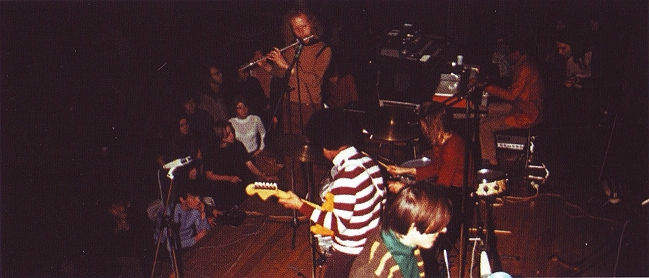 Personnel: Christian Burchard (drums) Hansi Fischer (flute) Ralph Fischer (bass) Edgar Hofmann (saxophone, violin) Al Jones (guitar)  Tracklist: 01. Try To Be (Burchard) 10.34 02. Time (Burchard) 10.09 03. Tausenfüssler (H.Fischer) 9.20 04. Spain Yes, Franco Finished (Burchard) 26.26 |
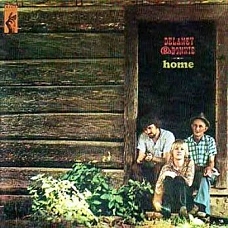 Delaney & Bonnie's
brand of soul-rock was firmly in place by the time of this 1969 album,
the only one they recorded for Stax. Their following albums would gain
greater exposure, but there's not much difference between this record
and those subsequent efforts, except perhaps that this is more
soul-oriented and less rock-oriented. That's not too surprising
considering that members of Booker T. & the MG's are playing on most of the cuts, though a few were done in Hollywood with Leon Russell on keyboards and Carl Radle on bass. The material was a mixture of original songs and compositions from top Stax writers such as Steve Cropper, Isaac Hayes, and David Porter,
though generally the songs weren't as grittily powerful or memorably
hook-laden at the best stuff to come out of Stax in the late '60s. The
cover of "Piece of My Heart" was bound to pass relatively unnoticed in
the wake of Janis Joplin's wrenching hit cover of the song (with Big Brother & the Holding Company),
and "Hard to Say Goodbye" seems like an attempt to push their sound in a
slightly poppier direction, though not at all a bad one. (The 2006 CD
reissue resequenced the tracks and added six bonus songs, as well as
historical liner notes. The reason for resequencing the order is
uncertain, but the six additional cuts are welcome, as their sound and
quality fit in fine with the rest of the record. If there's any
difference between the bonus material and the songs that found a place
on the initial release, it's that there's a greater emphasis on original
compositions. Of those, "Get Ourselves Together" and "All We Really
Want to Do" are both well up to the standards of the tracks that had
been included on the LP. They also pointed a little more in a rock
direction, and slightly away from the faithful adherence to the Stax
sound that characterized the sessions.) (by Ritchie Unterberger) Delaney & Bonnie's
brand of soul-rock was firmly in place by the time of this 1969 album,
the only one they recorded for Stax. Their following albums would gain
greater exposure, but there's not much difference between this record
and those subsequent efforts, except perhaps that this is more
soul-oriented and less rock-oriented. That's not too surprising
considering that members of Booker T. & the MG's are playing on most of the cuts, though a few were done in Hollywood with Leon Russell on keyboards and Carl Radle on bass. The material was a mixture of original songs and compositions from top Stax writers such as Steve Cropper, Isaac Hayes, and David Porter,
though generally the songs weren't as grittily powerful or memorably
hook-laden at the best stuff to come out of Stax in the late '60s. The
cover of "Piece of My Heart" was bound to pass relatively unnoticed in
the wake of Janis Joplin's wrenching hit cover of the song (with Big Brother & the Holding Company),
and "Hard to Say Goodbye" seems like an attempt to push their sound in a
slightly poppier direction, though not at all a bad one. (The 2006 CD
reissue resequenced the tracks and added six bonus songs, as well as
historical liner notes. The reason for resequencing the order is
uncertain, but the six additional cuts are welcome, as their sound and
quality fit in fine with the rest of the record. If there's any
difference between the bonus material and the songs that found a place
on the initial release, it's that there's a greater emphasis on original
compositions. Of those, "Get Ourselves Together" and "All We Really
Want to Do" are both well up to the standards of the tracks that had
been included on the LP. They also pointed a little more in a rock
direction, and slightly away from the faithful adherence to the Stax
sound that characterized the sessions.) (by Ritchie Unterberger)Personnel: Joe Arnold (saxophone) Bonnie Bramlett (vocals) Delaney Bramlett (guitar, vocals) Ben Cauley (trumpet) Steve Cropper (guitar) John Davis (trumpet) Donald Dunn (bass) Phil Forrest (background vocals) Isaac Hayes (keyboards) Al Jackson, Jr. (drums) Wayne Jackson (trumpet) Booker T. Jones (keyboards) Jim Karstein (percussion) Ed Logan (saxophone) Andrew Love (saxophone) Jay Pruitt (trumpet) Carl Radle (bass) Leon Russell (keyboards) Dick Steff (trumpet) Tracklist: 01. It's Been a Long Time Coming (B.Bramlett/D.Bramlett) 2.22 02. A Right Now Love (Banks/B.Bramlett 2.23 03. We Can Love (Cropper/Floyd 2.25 04. My Baby Specializes (Hayes/Porter) 3.18 05. Everybody Loves A Winner (Jones) 4.49 06. Things Get Better (Cropper/Floyd) 2.27 07. Just Plain Beautiful (Cropper/Crutcher) 2.12 08. Hard To Say Goodbye (B.Bramlett/Radle) 2.33 09. Pour Your Love On Me (B.Bramlett/D.Bramlett/Radle) 2:45 10. Piece of My Heart (Berns/Ragovoy) 4.38 + 11. A Right Now Love (Banks/B.Bramlett) 2.21 12. I've Just Been Feeling Bad (Cropper/Floyd) 2.52 13. Dirty Old Man (D.Bramlett/Davis) 2.38 14. Get Ourselves Together (B.Bramlett/D.Bramlett/Radle) 2.28 15. Pour Your Love On Me (B.Bramlett/D.Bramlett/Radle) 2.46 16. Hard To Say Goodbye (B.Bramlett/Radle) 2.35 |
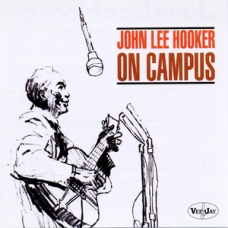 Vee Jay's 1964 album John Lee Hooker on Campus is titled to sound like a
live recording but it isn't. As part of the Collectables Vee Jay
reissue campaign, these 12 tracks originally tried to capitalize on Hooker's
emergence on the coffeehouse/college tours he was involved in at the
time. Vee Jay's 1964 album John Lee Hooker on Campus is titled to sound like a
live recording but it isn't. As part of the Collectables Vee Jay
reissue campaign, these 12 tracks originally tried to capitalize on Hooker's
emergence on the coffeehouse/college tours he was involved in at the
time. This is an electric album that contains excellent material from Hooker, even though the occasional background singers get in the way, attempting to modernize his gritty blues with a smoother soul sound. (by Al Campbell) Electric blues from John Lee Hooker released in the mid 60s on Vee Jay – all Hooker originals that are riveting and soul shaking as you could hope for. Although it's titled John Lee Hooker On Campus, it's more a reflecting of the time than a literal description of what you'll hear here – the folk and blues revival was in full swing and holding college audiences rapt, but it's not a concert recording, but Hooker in excellent 60s form. (by dusty groove) Personnel: John Lee Hooker (guitar, vocals) + a bunch of unknown studio musicians Tracklist: 01. I´m Leaving (Hooker) 2.12 02. Love Is A Burning Thing (Hooker) 2.39 03. Birmingham Blues (Hooker) 2.54 04. I Want To Shout (Hooker) 2.25 05. Don´t Look Back (Hooker/Robinson/White) 2.56 06. I Want To Hug You (Hooker/Ling) 2.29 07. Poor Me (Hooker) 2.41 08. I Want To Ramble (Hooker) 3.11 09. Half A Stranger (Sykes) 4.24 10. My Grinding Mill (Hooker) 3.11 11. Bottle Up And Go (Hooker) 2.25 12. One Way Tichet (Hooker) 3.27 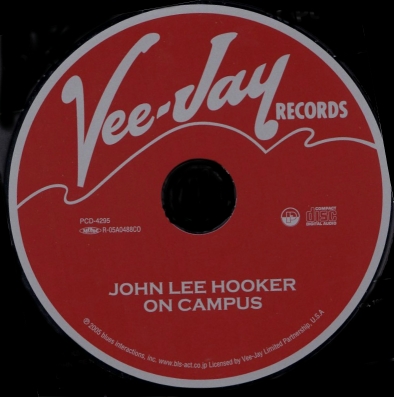 ARMU 0052 |
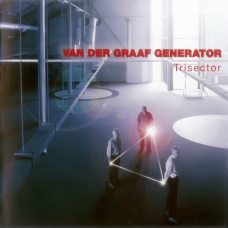 Usually, the first comeback album is a pretext for a comeback tour; the second comeback album is the real test. And Van Der Graaf Generator passed that test, although fans may argue about that for years. Vintage VDGG this is not (and if you're still hoping for that, well, it won't happen). And, of course, Trisector sounds closer to a Peter Hammill solo album than any VDGG LP from the '70s. After all, drummer Guy Evans has released very few albums (let alone under his own name) during the interim, and organist Hugh Banton has released only one, while Hammill chugged out three dozens or so. Consequently, yes, Hammill's songwriting dominates and follows the style of songwriting found on his 2000s albums. And the presence of sax player David Jackson (who left after the Present tour) would have changed very little of that. In this incarnation of the band, Banton's organ is the dominating instrument, either in complex intricate patterns or in soft accompaniment mode. Present,
the group's first comeback album, was a slim offering: six songs for a
total duration of 35 minutes, and only two of these songs found their
way into the live set list. Trisector
is more generous (nine songs over 53 minutes) and offers higher highs
and lower lows. "The Hurlyburly" is a strange inclusion and definitely a
questionable choice for an opener. The 21st century surf music feel of
this instrumental might have worked as comic relief toward the middle
mark of the album, or even as a coda. Placed at the forefront, it
indisposes. The half-point has been given instead to "Drop Dead," an
unremarkable rocker that would have felt weak even on one of Hammill's rock albums. Those two low points aside, Trisector
stands as a strong achievement. "Interference Patterns" and "All That
Before" have the complexity and rawness you'd expect from this
one-of-a-kind prog rock band. "Lifetime" and "Only in a Whisper" are
definitely softer than anything VDGG
used to do in the '70s, but they are artistically successful songs. The
latter, a delicate two-chord affair, provides a slow-boiling showcase
for Hammill's poignant voice and Evans'
subtle drumming. The 12-minute "Over the Hill" is almost as epic as the
group's music used to be; it will easily become a live favorite. And
"(We Are) Not Here" brings the album to a strong though unusual close,
with its driving and repetitive motif and its stacked vocals. The songs
on Trisector
have a tendency to run a bit too long (the ending of "The Final Reel"
and "Only in a Whisper," the middle section in "All That Before"), but
the songwriting is strong, the attitude is sincere, and the group
manages to present a convincing and viable version of Van Der Graaf Generator
for the 21st century. The fact that most of the album's songs have been
included in the group's 2008 live set shows how much more committed the
musicians are to this material, compared to the
"let's-give-this-thing-a-try" approach found on Present. (by François Couture) Usually, the first comeback album is a pretext for a comeback tour; the second comeback album is the real test. And Van Der Graaf Generator passed that test, although fans may argue about that for years. Vintage VDGG this is not (and if you're still hoping for that, well, it won't happen). And, of course, Trisector sounds closer to a Peter Hammill solo album than any VDGG LP from the '70s. After all, drummer Guy Evans has released very few albums (let alone under his own name) during the interim, and organist Hugh Banton has released only one, while Hammill chugged out three dozens or so. Consequently, yes, Hammill's songwriting dominates and follows the style of songwriting found on his 2000s albums. And the presence of sax player David Jackson (who left after the Present tour) would have changed very little of that. In this incarnation of the band, Banton's organ is the dominating instrument, either in complex intricate patterns or in soft accompaniment mode. Present,
the group's first comeback album, was a slim offering: six songs for a
total duration of 35 minutes, and only two of these songs found their
way into the live set list. Trisector
is more generous (nine songs over 53 minutes) and offers higher highs
and lower lows. "The Hurlyburly" is a strange inclusion and definitely a
questionable choice for an opener. The 21st century surf music feel of
this instrumental might have worked as comic relief toward the middle
mark of the album, or even as a coda. Placed at the forefront, it
indisposes. The half-point has been given instead to "Drop Dead," an
unremarkable rocker that would have felt weak even on one of Hammill's rock albums. Those two low points aside, Trisector
stands as a strong achievement. "Interference Patterns" and "All That
Before" have the complexity and rawness you'd expect from this
one-of-a-kind prog rock band. "Lifetime" and "Only in a Whisper" are
definitely softer than anything VDGG
used to do in the '70s, but they are artistically successful songs. The
latter, a delicate two-chord affair, provides a slow-boiling showcase
for Hammill's poignant voice and Evans'
subtle drumming. The 12-minute "Over the Hill" is almost as epic as the
group's music used to be; it will easily become a live favorite. And
"(We Are) Not Here" brings the album to a strong though unusual close,
with its driving and repetitive motif and its stacked vocals. The songs
on Trisector
have a tendency to run a bit too long (the ending of "The Final Reel"
and "Only in a Whisper," the middle section in "All That Before"), but
the songwriting is strong, the attitude is sincere, and the group
manages to present a convincing and viable version of Van Der Graaf Generator
for the 21st century. The fact that most of the album's songs have been
included in the group's 2008 live set shows how much more committed the
musicians are to this material, compared to the
"let's-give-this-thing-a-try" approach found on Present. (by François Couture)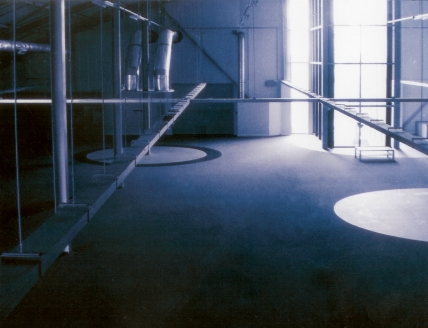 Personnel: Hugh Banton (organ, bass) Guy Evans (drums, percussion) Peter Hammill (guitar, piano, vocals) Tracklist: 01. The Hurlyburly (Banton/Evans/Hammill) 4,38 02. Interference Patterns (Banton/Evans/Hammill) 3.52 03. The Final Reel (Banton/Evans/Hammill) 5.49 04. Lifetime (Hammill) 4.47 05. Drop Dead (Banton/Evans/Hammill) 4.52 06. Only In A Whisper (Banton/Evans/Hammill) 6.44 07. All That Before (Banton/Evans/Hammill) 6.29 08. Over The Hill (Banton/Evans/Hammill) 12.29 09. (We Are) Not Here (Banton/Evans/Hammill) 4.04 |
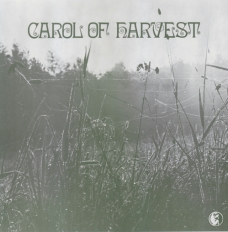 Carole of Harvest, like Emtidi, Gurnemanz, Ougenweide and Hoelderlin, showed that a psychedelic prog folk scene did exist in
Germany in the 70s, but their sole effort came along when the other bands had shifted or disappeared, and therefore the genre
was of less interest by then. In fact, one might even ask what the point was. Most of the ideas presented here were long
past their expiry date both in their native land and elsewhere, often sounding more like early than late 70s. The
instrumentation is sparse and samey, featuring mostly heavily strummed electric or amplified acoustic guitars, with the keys
secondary. Carole of Harvest, like Emtidi, Gurnemanz, Ougenweide and Hoelderlin, showed that a psychedelic prog folk scene did exist in
Germany in the 70s, but their sole effort came along when the other bands had shifted or disappeared, and therefore the genre
was of less interest by then. In fact, one might even ask what the point was. Most of the ideas presented here were long
past their expiry date both in their native land and elsewhere, often sounding more like early than late 70s. The
instrumentation is sparse and samey, featuring mostly heavily strummed electric or amplified acoustic guitars, with the keys
secondary.
Where Carole of Harvest departs from all of the above in a favourable sense is the superb vocals of Beate Krause, who is reminiscent of the singers in the aforementioned groups but also of Jacquie MacShee and Annie Haslam. It is expressive and is in perfect sync with the accompaniment, no more so than in the finale of the original LP, "Try a LIttle Bit", 10 minutes of prog folk bliss with more bite than Pentangle or Renaissance could ever hope to muster. Ms Krause's wordless acompaniment that follows the main part of the song is masterfully expressive and harmonious, and the synthesizers, and perhaps mellotron at the finale, provide just the right augmentation to the basic sound. While drums are present on this track, they are kept low and are not needed, so potent is the basic groove. That is the general trend in the album. The other major highlight is the longest song, the 16 minute anti war reflection called "Put on Your Nightcap" that opens the album with tentative guitar reflections, unrushed and pregnant with promise, accompanied by the sounds of the wind. The structure and manner of buildup is very progressive, with time given to express the lyrical themes and some impressive synthesizer and lead guitar work, mostly played at a slow pace reflecting the ponderous nature of the theme. A second part is slightly more upbeat with more emphasis on the rhythm, and some prominent bass work. The other three original songs from the LP are all shorter and decent but not quite to 5 star level, being like more concise but less interesting versions of the two monsters. The bonus material is live, shows a more straightforward rocking side of the band, and sounds quite out of place given the strength and style of the other material. While the harvest reaped is superficially similar to the usual autumn fare, the album manages to carve a feast for the prog fan with an interest in electric folk, as well as an indelible niche among the many German one-offs in existence. Highly recommended.(by kenethlevine) Personnel: Robert Högn (drums) Beate Krause (vocals) Jürgen Kolb (keyboards) Axel Schmierer (guitar) Heinz Reinschlüssel (bass) Tracklist: 01. Put On Your Nightcap (Schmierer) 16.02 02. You And Me (Schmierer) 2.31 03. Somewhere At The End Of The Rainbow (Schmierer) 6.26 04. Treary Eyes (Schmierer) 4.17 05. Try A Little Bit (Schmierer) 9.59 06. River (Schmierer) 2.36 07. Sweet Heroin (Schmierer) 7.04 08. Brickstone (Schmierer) 1.14 |
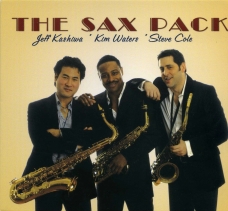 The joyful trend towards all-star tours in smooth jazz began in the
mid-'90s with Guitars & Saxes and became the standard on summer
festival circuits well into the 2000s. One of the most exciting and
popular of these has been the Sax Pack,
a clever turn of phrase that brings to mind great showmanship and
supreme cool -- qualities that popular and soulful genre saxmen Jeff Kashiwa, Kim Waters, and Steve Cole have in spades. All of them have enjoyed lengthy solo careers but were inspired when Kashiwa
presented the idea of a trio tour around 2003 after seeing a PBS
documentary on The Rat Pack. The concept was an instant success, and has
resulted in lengthy annual tours ever since, but no doubt record
company red tape held up the process of committing the energy of their
three horns to commercially released tracks. Shanachie, Waters'
longtime label, won the rights, and this "debut" album -- while not
fully capturing the blistering energy and improvisations this trio
projects on-stage -- is full of outrageous, melodic, mostly
high-grooving fun. A little short at nine cuts, they seem to be playing
it a bit close to the vest until the final three originals, when they
cut loose on the bubbling, retro-soul tune "A Little Bit Closer," the
urgently soulful, free-spirited jam patterned after their longtime idol
"Maceo," and the moody, blues-drenched closer "Goin' Home," which gives
them all ample stretching time as the others back them with sensuous
horn section subtlety. The disc kicks off with the playful, instantly
infectious first single "Fallin' for You," which all three wrote but
totally captures the vibe of many of Kashiwa's
previous hits. They load the front end of the track list with in the
pocket, perfectly catchy original tunes that only hint at what they're
capable of, but part of smooth jazz's success is being cool and polished
so they get away with it. Live, their covers of "The World Is a Ghetto"
and "Tequila" are major party tunes, while here the festivities are a
bit more candlelit (but again, well played and supremely slick and cool)
and less raucous; Jeff Golub's
guitar contribution on "Tequila" adds some great crunch to the mix. The
mixed bag here epitomizes the dichotomy between radio-ready pop
instrumentals the smooth jazz format jumps on, and the festive jams that
happen when great musicians play live. The good news that even the
songs that leave us wanting more sizzle are still enjoyable to tap along
to. (by Jonathan Widran) The joyful trend towards all-star tours in smooth jazz began in the
mid-'90s with Guitars & Saxes and became the standard on summer
festival circuits well into the 2000s. One of the most exciting and
popular of these has been the Sax Pack,
a clever turn of phrase that brings to mind great showmanship and
supreme cool -- qualities that popular and soulful genre saxmen Jeff Kashiwa, Kim Waters, and Steve Cole have in spades. All of them have enjoyed lengthy solo careers but were inspired when Kashiwa
presented the idea of a trio tour around 2003 after seeing a PBS
documentary on The Rat Pack. The concept was an instant success, and has
resulted in lengthy annual tours ever since, but no doubt record
company red tape held up the process of committing the energy of their
three horns to commercially released tracks. Shanachie, Waters'
longtime label, won the rights, and this "debut" album -- while not
fully capturing the blistering energy and improvisations this trio
projects on-stage -- is full of outrageous, melodic, mostly
high-grooving fun. A little short at nine cuts, they seem to be playing
it a bit close to the vest until the final three originals, when they
cut loose on the bubbling, retro-soul tune "A Little Bit Closer," the
urgently soulful, free-spirited jam patterned after their longtime idol
"Maceo," and the moody, blues-drenched closer "Goin' Home," which gives
them all ample stretching time as the others back them with sensuous
horn section subtlety. The disc kicks off with the playful, instantly
infectious first single "Fallin' for You," which all three wrote but
totally captures the vibe of many of Kashiwa's
previous hits. They load the front end of the track list with in the
pocket, perfectly catchy original tunes that only hint at what they're
capable of, but part of smooth jazz's success is being cool and polished
so they get away with it. Live, their covers of "The World Is a Ghetto"
and "Tequila" are major party tunes, while here the festivities are a
bit more candlelit (but again, well played and supremely slick and cool)
and less raucous; Jeff Golub's
guitar contribution on "Tequila" adds some great crunch to the mix. The
mixed bag here epitomizes the dichotomy between radio-ready pop
instrumentals the smooth jazz format jumps on, and the festive jams that
happen when great musicians play live. The good news that even the
songs that leave us wanting more sizzle are still enjoyable to tap along
to. (by Jonathan Widran)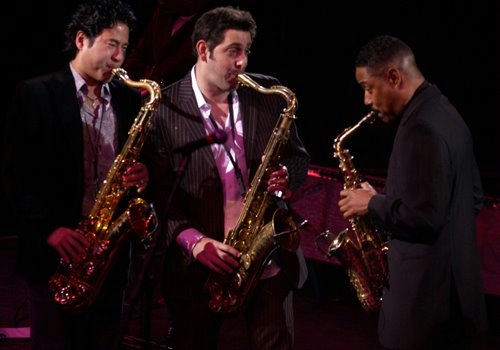 Personnel: Ranedy Bowland (guitar) Wayne Bruce (guitar) Steve Cole (saxophone) Chris Davis (keyboards) Jeff Golub (guitar) Gerey Johnson (guitar) Jeff Kashiwa (saxophone) David Andrew Mann (drums, synthesizer) Mike Ricchiuti (keyboards) Bernd Scvhoenhart (guitar) Kim Waters (saxophone) Tracklist: 01. Fallin´ For You (Cole/Kashiwa/Waters) 4.33 02. The Sax Pack (Cole/Kashiwa/Waters) 3.37 03. All I Really Want (Cole/Kashiwa/Waters) 4.26 04. The World Is A Ghetto (Allen/Brown/Dickerson/Jordan/Levitin/Miller/Scott) 5.28 05. Tequilla (Rio) 6.17 06. You Are My Staqrship (Henderson) 4.47 07. A Little Bit Closer (Cole/Kashiwa/Waters) 4.40 08. Maceao (Cole/Kashiwa/Waters) 5.59 09. Goin´ Home (Cole/Kashiwa/Waters) 5.33 ARMU 0049 |
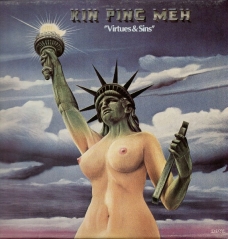 Even though this album is less phenomenal than the previous Kin Ping Meh 3,"Virtues &
Sins" still represents what so called good hard rock music at the time. Even though this album is less phenomenal than the previous Kin Ping Meh 3,"Virtues &
Sins" still represents what so called good hard rock music at the time. The melody line at "Good Time Gracie" (3:31) is a good one to enjoy. My favorite track "Your're a Liar" (7:25) represents a simple composition with good riffs and arrangement. This is the kind of track that I kept playing on air with the radio sattion that we had at that time. The following "Night-Time Glider" (5:41) has powerful structure and excellent nuance. The album title track combines good melody and music harmony. It's hard not to have this album if you already have the Kin Ping Meh 3. It's a good follow-up of previous album and considering this as rare album, you should have
it in your collection. (by Gatot) Personnel: Uli Gross (guitar) Geff Harrison (vocals) Gerhard Mrozeck (guitar) Fritz Schmitt (keyboards) Kalle Weber (drums, percussion) Alan Joe Wroe (bass) + Jean-Jacques Kravetz (organ on 06.) Tracklist: 01. Good Time Gracie (Mrozeck/Harrison/Wroe) 3.31 02. Your're A Liar (Mrozeck/Harrison/Wroe) 7.25 03. Night-Time Glider (Mrozeck/Harrison/Wroe) 5.41 04. When Summer's Gone (Mrozeck/Harrison/Wroe) 5.39 05. Whisky Flyer (Mrozeck/Harrison/Wroe) 5.46 06. Rich Kid Blues (Reid) 6.55 07. Living Your Lies (Mrozeck/Harrison/Wroe) 5.41 08. Virtue And Sins (Mrozeck/Schmitt/Weber/Harrison/Wroe) 4.27 |
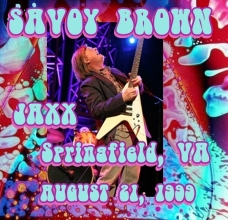 This is just another Savoy Brown live recording. This is just another Savoy Brown live recording. This time a FM broadcast or soundboard recording from Springfield to promote their album "The Blues Keep Me Holding On". Savoy Brown was part of the late-'60s blues-rock movement, unfortunately they never achieved as much success in their homeland as they did in America, where they promoted their albums with nonstop touring. It´s really a phenomen: Kim Simmonds is since 1965 active and his shows are always a pleasure: High energy blues-rock that really satisfy every fan of this genre. The drummer on this album, TomCompton played years ago with Alvin Lee and his Ten Years Later band during the 70´s/80´s. Personnel: Tom Compton (drums) Nathaniel Peterson (bass, vocals) Kim Simmonds (guitar, vocals) Tracklist: 01. Headline News (Peterson/Simmonds) 7.00 02. Hard Way To Go (Youlden) 4.39 03. Hellbound Train (Silvester/Simmonds) 15.18 04. Little Red Rooster (Dixon) 6.06 05. Wang Dang Doodle (Dixon) 12.57 06. The Boogie (Simmonds) 13.18 07. Streetcorner Talkin' (Simmonds) 14.01 ARMU 0047 |
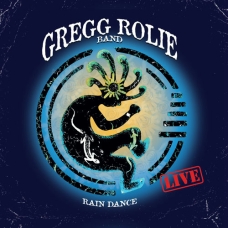 Rain Dance is a new live CD taken from the same performance filmed for a
potential DVD release (which has hit some technical buffers at
present). The live CD was available at Rolie Band gigs. There are some minor backing vocals
overdubs but apart from that it’s the raw deal, as was played at the
concert. Rain Dance is a new live CD taken from the same performance filmed for a
potential DVD release (which has hit some technical buffers at
present). The live CD was available at Rolie Band gigs. There are some minor backing vocals
overdubs but apart from that it’s the raw deal, as was played at the
concert.It is an independently produced item and Gregg’s son Sean Rolie handled the remixing chores. As Gregg states” I hired him because he’s good at what he does, not because he’s my son??” The CD was given the final production by Gregg and Ron Wikso. It is initially released as a limited edition run of around 2000 copies. The CD is a document of a 2007 performance at the Sturgis Motorbike Rally concert. It features many of the old Santana favourites from the first three recordings. And there is one cut from the Abraxas Pool CD and which was re-imagined again on the Roots CD, which is Going Home. Give It To Me is also culled from the Roots CD recording. There are two newer songs Bailamos El Son and Across The Water. The Santana back catalogue is well represented by Jingo, Soul Sacrifice, Black Magic Woman, Gypsy Queen, No One To Depend On, Oye Como Va and Evil Ways. The early band’s version of Albert King blues favourite As The Years Go Passing By with its Latinised double tempo burnout is also included. The CD timing totals around the seventy minutes of music mark. Talking to Gregg on a blazing hot Texas morning found him reflective of the current state of the music and wider markets and wanting to represent the Rolie Band sound to fans at gigs as well thru the dwindling outlets now present for recorded music. " We are doing around ten gigs this year and we are actively looking for more. The recent gig at the Hard Rock Café was great, they showed the original Santana band at Woodstock doing Soul Sacrifice from the film, projected on a screen in front of the stage and during the conga solos, the screen lifted and we went straight in picking the song up, where they had left it.” He also reflected on the Gregg Rolie Band, "The band are great,
because we all really enjoy each other and I think the sound reflects
the fun we are having. We subtitle the band; "Santana- the way you
remember it” And at that gig in New York recently, we had half of the
original Santana, that’s about the closest you’re ever gonna’ get, to
seeing that band together again! He remembered the recent remixing and augmenting of the Woodstock film re-mastering by Eddie Kramer. "Carlos redid his rhythm guitar parts as they was a lot of leakage in the sound. And there was a lot of tuning problems that day- the guitar was out of tune and the tuning stuff was difficult for everybody. Carlos’ solos were great and there was no problem there. Mike Carabello and Adrian Areas did some fine tuning on guiro and the timbale cowbell patterns as well, due to the leakage during the original set.” Rain Dance is a must for Gregg Rolie fans, Hammond B3 enthusiasts, Latin rockers and Santana completists. (by Jim McCarthy)
Adrian Areas (percussion) Mike Carabello (percussion) Kurt Griffey (guitar) Alphonso Johnson (bass) Wally Minko (keyboards) Gregg Rolie (keyboards, vocals) Ron Wikso (drums) Tracklist: 01. Jingo (Olatunji/Santana) 5.49 02. Going Home (Rolie) 4.11 03. No One to Depend On (Carabello/Rolie) 5.48 04. As the Years Go Passing By (Malone) 10.07 05. Evil Ways (Henry) 4.21 06. Across the Water (Rolie) 6.24 07. Give It to Me (Rolie) 4.34 08. Soul Sacrifice (Brown/Malone/Rolie) 10.09 09. Black Magic Woman (Green) 3.27 10. Gypsy Queen (Szabo) 4.52 11. Oye Como Va (Puente) 5.20 12. Bailamos El Son (Rolie) 5.43 ARMU 0046 |
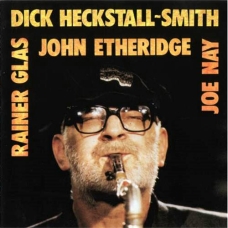 Saxophonist Dick Heckstall-Smith had a major role in the British blues boom of the 1960s, playing in the bands of Alexis Korner, Graham Bond, and John Mayall. In all of his work, and particularly in the late-'60s band Colosseum,
he ventured into the little-explored territory where blues, jazz, and
rock meet. Saxophonist Dick Heckstall-Smith had a major role in the British blues boom of the 1960s, playing in the bands of Alexis Korner, Graham Bond, and John Mayall. In all of his work, and particularly in the late-'60s band Colosseum,
he ventured into the little-explored territory where blues, jazz, and
rock meet. In addition to doing session work, he's released some solo recordings. In the late 80´s he began to work with jazz-guitarplayer John Etheridge: "Other noteworthy albums during the course of the 1990´s are Dick´s work with The John Etheride Group on Obesession Fees, an eight-track album resulting in a tour of Germany" (Stephanie Lynne Thorburn in her biography of Dick Heckstall-Smith) This is their second album, recorded live in Erlangen/Germany and is a real fine example of Dick Heckstall-Smith and his very own, very special style of playing jazz-rock. 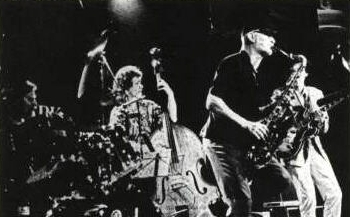 John Etheridge (guitar) Rainer Glass (bass) Dick Heckstall-Smith (saxophone) Joe Nay (drums) Tracklist: 01. Venerable Bede (Etheridge)8.58 02. Woza Nasu (Heckstall-Smith) 18.41 03. Moongoose (Heckstall-Smith) 13.42 04. Baiere (Etheridge) 9.24 ARMU 0045 |
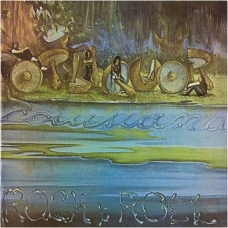 Wow, Pot Liquor. A truly great band, from my home state. I was in jr.
high school when Pot Liquor was a top regional touring act. Likemany
great acts, they never sold records like they should have. But they did
tour, and expose many young southerners to what amounts to some of the
first "southern rock" bands. I love all their stuff (4 studio albums
from 1970-1974), but am particularly partial to Louisiana Rock and Roll.
I am glad to see mp3's finally available. With the help of a like
minded Louisiana music fan, we have recently put all of their recorded
catalog on cd (2 discs), lovingly restored from vinyl damaged by
Hurricane Katrina. Some of the best music, ever! And, the best name
ever for a southern rock band! Wow, Pot Liquor. A truly great band, from my home state. I was in jr.
high school when Pot Liquor was a top regional touring act. Likemany
great acts, they never sold records like they should have. But they did
tour, and expose many young southerners to what amounts to some of the
first "southern rock" bands. I love all their stuff (4 studio albums
from 1970-1974), but am particularly partial to Louisiana Rock and Roll.
I am glad to see mp3's finally available. With the help of a like
minded Louisiana music fan, we have recently put all of their recorded
catalog on cd (2 discs), lovingly restored from vinyl damaged by
Hurricane Katrina. Some of the best music, ever! And, the best name
ever for a southern rock band!
As for "Louisiana Rock and Roll", it rocks! From the opening of "You Can't get there form Here, to the closing track, "Guitar Boogie", this is one of the foinest rock and roll records I have ever heard. Favorite songs include the two mentioned, along with "Waitin' for me at the River", "St. Jude's Blues" and the title track. 5 Stars for "Louisian Rock and Roll". Pot Liquor rocked my generation. (A.Blossman) 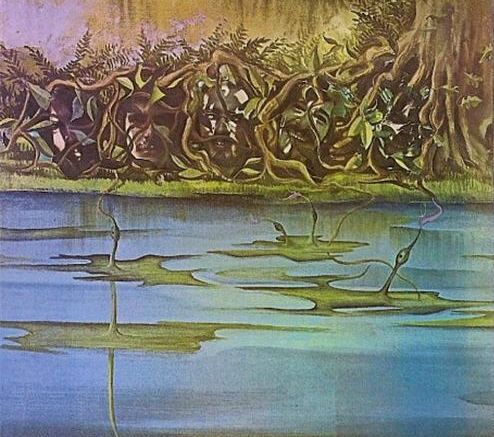 Personnel: Jerry Amoroso (drums, percussion, vocals) George Ratzlaff (keyboards, guitar, harmonica, percussion, vocals) Guy Schaeffer (bass, vocals) Les Wallace (guitar, Vocals) + Bud Brasher (horn) Baton Rouge Symphony (strings) Art de Cesare (Horn) Charlie Depuy (horn) Lee Fortier (Horn) Cy Frost (synthesizer) Louisiana Horns (horn) Bill Ludwig (horn) Leon Medica (bass, vocals) New Orleans Symphony (strings) Nick Rousee (horn) Tracklist: 01. You Can't Get There From Here (Kelly) 3.20 02. Waitin' for Me at the River (Ratzlaff) 4.22 03. Taj and Jimmy's Blues (Mahal/Reed) 5.39 04. Rip It Up (Wallace) 2.35 05. H (Wallace) 4.50 06. Louisiana Rock & Roll (Ratzlaff) 3.20 07. St. Jude's Blues (Amoroso) 2.59 08. Born Under a Bad Sign (Bell/Jones) 5.21 09. Guitar Boogie (Ratzlaff) 3.37 10. For You (Wallace) 4.35 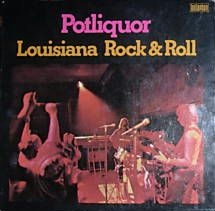 Alternate frontcover ARMU 0044 |
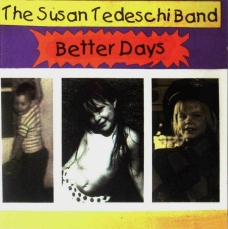 Originally released in 1995, Better Days was re-released after the success of Just Won't Burn created a legion of blues fans wanting more of Susan Tedeschi. Originally released in 1995, Better Days was re-released after the success of Just Won't Burn created a legion of blues fans wanting more of Susan Tedeschi. This record finds Tedeschi's guitar prowess and eminent vocals proliferating the musical landscape in the same manner of blues legends who have gone before her. The tracks "It Hurts Me Too" and "Ain't Nobody's Business" are classic slow, bluesy songs complete with emotional vocal wailings that are sure to bring the house down when performed in a live arena. She picks up the pace with "Locomotive" and "I Don't Want Nobody," showing off her six-string skills. While there is no question that Tedeschi is a true talent and a blues force to be reckoned with, the musical arrangements could be improved by using a less-formulaic blues structure and attempting to offer something more contemporary. She has proven herself worthy of sharing the stage with the masters; her next challenge should be to break away and create her own sound. 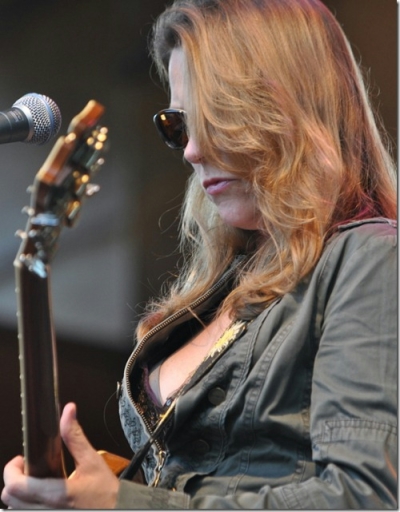 Personnel: Mike Aiello (drums) Adrienne Hayes (guitar, slide-guitar) Jim Lamond (bass) Annie Raines (harmonica) Susan Tedeschi (guitar, vocals) Tracklist: 01. It´s Up To You (Lamond/Tedeschi) 4.19 02. Gonna Write Him A Letter (Tedeschi) 3.05 03. Love Never Treats Me Right (Tedeschi) 2.11 04. It Hurts Me Too (James/Robinson) 5.04 05. Locomotive (Tedeschi) 4.28 06. You´re On My Hair (Tedeschi) 4.12 07. Better Days (Hayes) 6.40 08. Hound Dog (Leiber/Stoller) 4.03 09. I Don´t Want Nobody (Robey) 2.58 10. Ain´t Nobody Business (Grainger/Robbins) 7.33 ARMU 0043 |
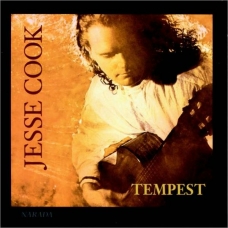 Be warned -- this is an album that will grow on you very quickly. Be warned -- this is an album that will grow on you very quickly. Jesse Cook is a Canadian flamenco guitarist who took the world fusion route at some point, basing his playing against a wonderful mix and match of percussion, synthesizers and samplers. It's easy to spot some of the artificial elements, but many more of them have been blurred into the total sound, making it impossible to separate live players from the computer-driven tracks -- excellent work indeed (Cook also produced and engineered the tracks, which makes the result all the more impressive). Tempest is a subtle album, very seductive, getting one's attention without demanding it, through a clever phrase, a particularly soulful vibrato, a nice effect in the rhythm tracks, and so on. Intent listening to this album is a very rewarding experience indeed. (by Steven McDonald) A substantial part of the album's publicity was gained after the tracks Tempest and Breeze from Saintes Maries were used by a local Ontario cable TV operator as a background music for their 'TV Guide' listing channel. The tracks were played in a loop for many months "growing" on many viewers to the point they called the cable operator to inquire about it. (by wikipedia) 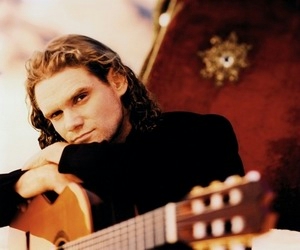 Personnel: Jesse Cook (guitar, palmas, synthesizer, percussion) Blake Manning (percussion) Mario Melo (percussion) Andrew Morales (bass, palmas) Tracklist: 01. Tempest (Cook)3.02 02. Cascadan (Cook) 3.10 03. Breeze From Saintes Maries (Cook) 5.22 04. Baghdad (Cook) 4.21 05. Parasol (Cook) 5.36 06. Dance Of Spring (Cook) 4.26 07. Soledad (Cook) 3.05 08. Orbit (Cook) 3.09 09. Fate (Parasol Reprise) (Cook) 5.07 10. Jumpstart (Cook) 3.05 ARMU 0042 |
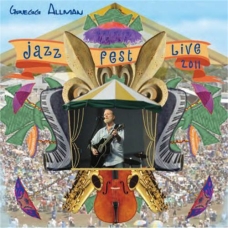 "I’ve got my hand over my heart,” Gregg Allman says of his extraordinary new album called Low Country Blues , "and if it’s a hit there, it’s a hit.” "I’ve got my hand over my heart,” Gregg Allman says of his extraordinary new album called Low Country Blues , "and if it’s a hit there, it’s a hit.”Simply put, Low Country Blues is Gregg Allman at his very best, a self-assured, spirited collection that will stand as a major milestone in what is undeniably an exceptional career. "Places you been, things that you done/Somehow you’re still on the run,” Allman sings on "Just Another Rider.” This album was recorded live at the legendary The New Orleans Jazz & Heritage Festival on 2011. Here´s a review: In the Blues Tent of the New Orleans Jazz Fest 2011, the most valuable player of Friday's (May 6) closing set had to be Gregg Allman's new liver. After all: No it, no him. And no deeply satisfied Blues Tent. Looking fit and singing strong for a man of his mileage, Allman fronted a brawny, horn-driven band that sounded more Memphis or Muscle Shoals than Macon, typical of his solo work. The old liver, a victim of Hepatitis C, was swapped out about a year ago. Long may the new one run. Friday, multiple ovations met solos and song endings. A few Allman Brothers Band favorites made the playlist, but only "Melissa" would remind anyone of the version they first heard, on 1972's "Eat a Peach." The Allman Brothers favorite "Whipping Post," best known as a slinky 6/8 jam on disc and endless classic-rock-radio plays, was unleashed as a 4/4 stomp. In addition to his new plumbing, Allman has been revivified by the reception won by his album of blues-chestnut covers released earlier this year, "Low Country Blues" (produced by T Bone Burnett, some keyboards by Dr. John). Friday, he was additionally bolstered by stellar guitar soloing by Scott Sharrard. Big, big shoes to fill for that guy, but he was up to it. Jay Collins' work on multiple horns, including flute, also earned earnest audience appreciation. They were the standouts in an excellent, supple, crowd-pleasing band. The Blues Tent was a crowded as I've ever seen it, at least leading up to the set. There was gradual outflow, but everybody who stayed to the end enjoyed an inspiring performance by a slugger making the most of his extra innings. But ... Taken from the press release: Upon his doctor's orders, Gregg Allman is unfortunately being forced to cancel his August 26 through September 15 concert dates. Some of these dates will be rescheduled for later in the year. Allman had to cancel four dates at the end of his four week European tour in June due to an upper respiratory condition. His doctor hoped that with rest, he'd get better, but unfortunately the issue has persisted. Treatment is going to involve several days of hospitalization and 4 - 6 weeks of bed rest at home. Allman continues to recover from his successful liver transplant and expects to return to touring in support of his highly acclaimed "Low Country Blues" album in the late fall.  Personnel: Gregg Allman (keyboards, guitar, vocals) Jay Collins (saxophone, flute) Jerry Jemmott (bass) Bruce Katz (keyboards) Floyd Miles (vocals) Steve Potts (drums) Scott Sharrad (guitar) Tracklist: 01. Don't Keep Me Wonderin (Allman) 4.23 02. I'm No Angel (Palmer/Colton) 4.11 03. Tears, Tears, Tears (Milburn) 6.21 04. Just Another Rider (Allman/Haynes) 5.43 05. Going Back To Daytona (Greenlee/Myles) 5.27 06. I Can't Be Satisfied (Morganfield) 6.00 07. Dreams (Allman/Tristano) 12.35 08. Before Bullets Fly 4.16 09. Melissa (Allman) 6.18 10. Whipping Post (Allman) 6:24 11. Midnight Rider (Allman) 5.00 12. Stage Banter 2.09 13. Sweet Feelin' (Carter/Daniel) 3.15 14. Statesboro Blues (McTell) 5.31 |
|
Encased in a classy
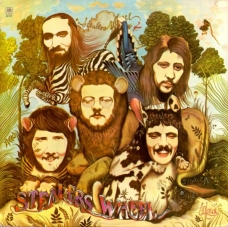 sleeve painted by Scottish playwright John "Patrick" Byrne, the first LP from the tumultuous Stealers Wheel is a debonair affair comprised of the kind of accomplished and polished pub pop for which impetus Gerry Rafferty would become known as he subsequently rode out the decade on the sublime radio single "Baker Street ." Rafferty released his first solo slab, Can I Have My Money Back? (the title already showing signs of unrest) in 1971, and brought amigo Joe Egan
from those sessions to the princely proceeding here. Worthy musical
moments abound, all forever overshadowed by the clever corporate-snub
"Stuck in the Middle With You" which branded the duo a one-hit wonder
when the track took on a life of its own. Sadly, the song also
foreshadowed the premature end of Stealers Wheel, and Rafferty and Egan
continued to document the personal and professional turmoil of their
short time together throughout their respective solo careers, even
re-recording some of these early jewels. And though only Rafferty's star continued to rise, Egan
harbors considerable talent as well, shining brightly on his Rubber
Soul-influenced tapestry "Another Meaning"; however, he keeps bland
company with Bad Company with the dumb thud of "I Get By." Meanwhile, Rafferty
creates one of those oh-so-cosmic '70s grooves for "Outside Looking
In," before being unfortunately caught in one of those oh-so-abrupt '70s
fades at the end of side one. This vibe wouldn't be broken so
drastically on CD, but for now, and seemingly forever, the platter must
be flipped for the unique "Johnny's Song" wherein mountain-rock breaks
surround Rafferty's
wry life observations. Hidden nugget "Next to Me" extols mellow
melancholy meditations exclusive to the West Coast and the Have a Nice
Day Decade. Closing pastorale "You Put Something Better Inside of Me"
inspired renditions by Ted Neeley and Raphael Ravenscroft.
Ultimately, this very solid outing casts a somber shadow because of
unfulfilled expectations. And any record this carefully crafted doesn't
deserve to languish in the bins of obscurity, but such seems to be the
fate of Stealers Wheel.
At least the band will always be remembered through the cinematic
revival of that supreme FM staple "Stuck in the Middle With You." (by Whitney Z. Gomes) sleeve painted by Scottish playwright John "Patrick" Byrne, the first LP from the tumultuous Stealers Wheel is a debonair affair comprised of the kind of accomplished and polished pub pop for which impetus Gerry Rafferty would become known as he subsequently rode out the decade on the sublime radio single "Baker Street ." Rafferty released his first solo slab, Can I Have My Money Back? (the title already showing signs of unrest) in 1971, and brought amigo Joe Egan
from those sessions to the princely proceeding here. Worthy musical
moments abound, all forever overshadowed by the clever corporate-snub
"Stuck in the Middle With You" which branded the duo a one-hit wonder
when the track took on a life of its own. Sadly, the song also
foreshadowed the premature end of Stealers Wheel, and Rafferty and Egan
continued to document the personal and professional turmoil of their
short time together throughout their respective solo careers, even
re-recording some of these early jewels. And though only Rafferty's star continued to rise, Egan
harbors considerable talent as well, shining brightly on his Rubber
Soul-influenced tapestry "Another Meaning"; however, he keeps bland
company with Bad Company with the dumb thud of "I Get By." Meanwhile, Rafferty
creates one of those oh-so-cosmic '70s grooves for "Outside Looking
In," before being unfortunately caught in one of those oh-so-abrupt '70s
fades at the end of side one. This vibe wouldn't be broken so
drastically on CD, but for now, and seemingly forever, the platter must
be flipped for the unique "Johnny's Song" wherein mountain-rock breaks
surround Rafferty's
wry life observations. Hidden nugget "Next to Me" extols mellow
melancholy meditations exclusive to the West Coast and the Have a Nice
Day Decade. Closing pastorale "You Put Something Better Inside of Me"
inspired renditions by Ted Neeley and Raphael Ravenscroft.
Ultimately, this very solid outing casts a somber shadow because of
unfulfilled expectations. And any record this carefully crafted doesn't
deserve to languish in the bins of obscurity, but such seems to be the
fate of Stealers Wheel.
At least the band will always be remembered through the cinematic
revival of that supreme FM staple "Stuck in the Middle With You." (by Whitney Z. Gomes)Personnel: Rod Coombes (drums) Joe Egan (keyboards, vocals) Paul Pilnick (guitar) Gerry Rafferty (guitar, vocals) Tony Williams (bass) Tracklist: 01. Late Again (Egan/Rafferty) 3.16 02. Stuck In The Middle (Egan) 2.56 03. Another Meaning (Egan) 2.56 04. I Get By (Egan) 3.16 05. Outside Looking In (Rafferty) 3.54 06. Johnny´s Song (Rafferty) 3.45 07. Next To Me (Egan/Rafferty) 3.37 08. José (Egan) 3.23 09. Gets So Lonely (Egan) 2.57 10. You Put Something Better Inside Me (Egan/Rafferty) 3.50 |
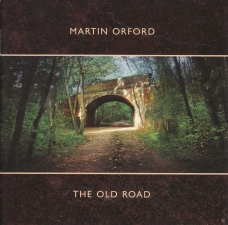 What a shame that Martin Orford has decided to bow out of the music industry but with The Old Road
he has done it in fine style. With the help of many Prog heavyweights including Dave Meros, Nick
D'virgilio, John Mitchell and John Wetton to name a few, he's produced an excellent old school melodic
rock/prog album. What a shame that Martin Orford has decided to bow out of the music industry but with The Old Road
he has done it in fine style. With the help of many Prog heavyweights including Dave Meros, Nick
D'virgilio, John Mitchell and John Wetton to name a few, he's produced an excellent old school melodic
rock/prog album. The strength of this album lies in it being so easily accessible with strong immediately likeable melodies, yet unlike so many albums that are so instantly appealing, still has much to offer after repeated plays. The standard of musicianship is excellent as expected with so many great players on board on the consistently strong material. Album opener Grand Designs grandiose instrumental beginnings lead into a track full of strong melodies and much excellent instrumental work. Not surprisingly the keyboard work is excellent and retro sounding like we've never left the seventies, brilliant! Power and Speed is a powerful up tempo instrumental which after a rocking start goes into fusion territory for a while and some great guitar work from one of my favourite guitarists of recent years, John Mitchell. Ray of Hope is a short more restrained moment reminding me of Genesis in their more commercial days, not least because of vocalist David Longdon sounding a bit like Phil Collins. Take It To The Sun is a fairly straightforward rock song with a strong vocal performance from John Wetton which is followed by the very acceptable, mainly piano, classical sounding Prelude. The longer tracks tend to be the best, partly for the powerful, explosive instrumental solos and the title track The Old Road is one of these with another fine performance from John Mitchell; the guitar solo section in general reminding me of IQ. Like Take It To The Sun, Out In The Darkness is an enjoyable, fairly simple melodic rock song which is followed by perhaps my favourite track, The Time And The Season. John Wetton sings again on this powerfully melodic piece. The instrumental ending of this 11 minute track is particularly enjoyable, once again having an IQ vibe to it with some lush keyboard sounds and soaring guitar work. Endgame, while being a fitting album closer, is the least satisfactory song here, but only because it's in such good company; still it's pleasant enough. And there we have it, a very strong collection of accessible tunes and a fine way to end an illustrious
musical career. If you've enjoyed any of Martin Orford's other work then I'm sure you'll find much to
enjoy here too. (by Nightfly)  Personnel: Martin Orford (vocals, keyboards, guitar, recorder, synthesizer, flute) Nick D´Virgilio (drums) Dave Meros (bass) + Gary Chandler (guitar on 02., 04, 06., 07. - 09.) Andy Edwards (drums on 01.) Mike Holmes (guitar on 08.) David Longdon (vocals on 03. + 09.) John Mitchell (lead guitar on 01., 03.+04., 09) Colm Murphy (fiddle on 06.) Dave Oberlé (percussion on 01., background vocals on 06.) Steve Thorne (guitar on 01., 02., 06. + 07., vocals on 07.) John Wetton (vocals, bass on 04 - 08.) Tracklist: 1. Grand Designs (9:58) 2. Power And Speed (5:58) 3. Ray Of Hope (3:53) 4. Take It To The Sun (5:26) 5. Prelude (1:36) 6. The Old Road (8:37) 7. Out In The Darkness (6:27) 8. The Time And The Season (10:46) 9. Endgame (5:20) ARMU 0039 |
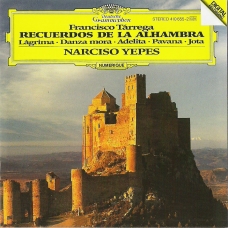 Taken from the original liner-notes: Taken from the original liner-notes:"I consider Francisco Tárrega to have been a sincere creative spirit and an outstanding instrumentalist, a master teacher and a kind man. When speaking of Tárrega and his signifiance, it must be kept in mind that during the second half of the 19th century the piano´s populairty caused earlier instruments - such as harpsichord, clavichord, lute, vihuela and guitar - to be almost completely forgotten. And most of the music written for these instruments also lay dormant. It was only with the advent of ercious musicological studies that a rediscovery of the forgotten music was begun, and with it a revival of interest in its interpretations on the instruments for which it was composed. Tárrega is a solid bridge linking the school of Fernando Sor (1778 - 1839) and his contemporaries witht he great resurgence of the guitar in this century. With this recording I wish to pay homage to Francisco Tárrega, who has brought happiness to so many people with his music" ( by Narciso Yepes) Personnel: Narciso Yepes (guitar) Tracklist: 01. Lágrima (Tárrega) 2.07 02. Estudio en forma de Minetto (Tárrega) 1.57 03. La Cartagenera (Tárrega) 5.20 04. Danza mora (Tárrega) 1.54 05. Columpio (Tárrega) 2.25 06. Endecha (Tárrega) 0.52 07. Oremus (Tárrega) 1.00 08. La Mariposa (Tárrega) 0.58 09. Recuerdos de la Alhambra (Tárrega) 2.58 10. Preludio inG major (Tárrega) 1.06 11. Adelita (Tárrega) 1.36 12. Sueno (Tárrega) 4.52 13. Minuetto (Tárrega) 1.47 14. Pavana (Tárrega) 2.13 15. Estudio de velocidad (Tárrega) 1.16 16. Jota (Tárrega) 9.12 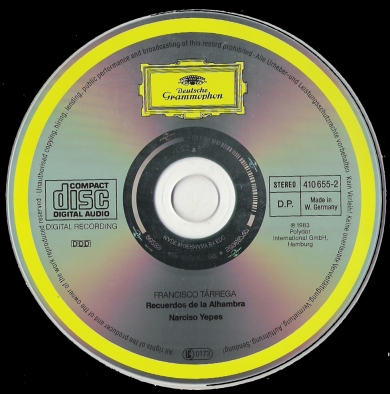 ARMU 0038 |
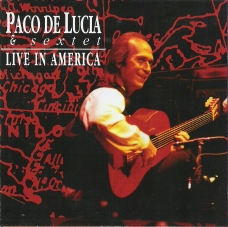 Recorded live in 1993 when Paco de Lucia was touring with his sextet, this is real artistry. De Lucia
has never been afraid to push the boundaries of flamenco, and with his
sextet he does just that. The music is moved by the spirit of the
tradition, but never constrained by it. Recorded live in 1993 when Paco de Lucia was touring with his sextet, this is real artistry. De Lucia
has never been afraid to push the boundaries of flamenco, and with his
sextet he does just that. The music is moved by the spirit of the
tradition, but never constrained by it. Like his show, the music builds, as he begins solo on "Mi Niño Curro," then other members join him before it all culminates in a gloriously grinning "Buana Buana King Kong." There's plenty of well-known de Lucia material here, like "Zyryab" and "Tio Sabas," but on-stage there's more freedom to stretch out than in the studio. That he's been influenced by his work with other guitarists is apparent in his approach, which sometimes takes on the colors of a jazz-flamenco fusion. But there are still plenty of moments of duende, the transcendence that's all important in flamenco. And time and time again, de Lucia effortlessly proves he's the world's greatest living flamenco guitar player, with ideas, runs, and shifts that stagger the imagination. About the only fault to find with this album is that it's not long enough. 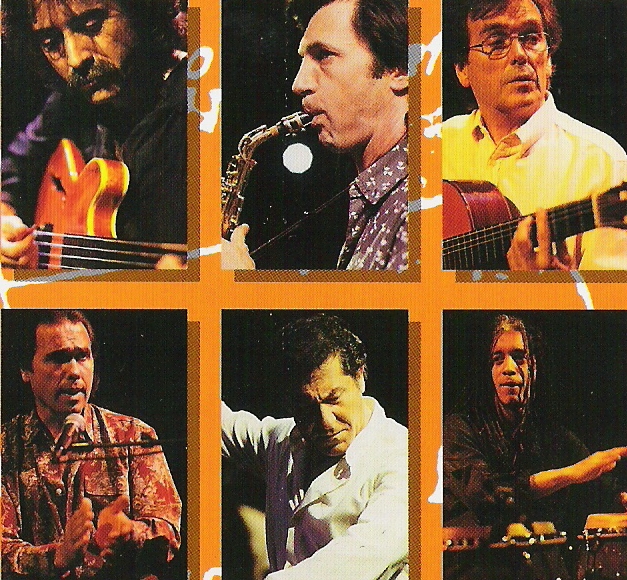 Personnel: Carlos Benavent (bass, mandolin) Rubem Dantasd (percussion) Ramon De Algeciras (guitar) Paco De Lucia (guitar) Pepe De Lucia (vocals) Jorge Pardo (saxophone, flute) Manolo Soler (percussion) Tracklist: 01. Mi Nino Curro (De Lucia) 8.31 02. La Bqarrosa (De Lucia) 8.54 03. Alcazar De Sevilla (De Lucia/De Lucia/Lencero/Amador) 8.54 04. Peroche (De Lucia/Benavent/Pardo/Canizares) 6.28 05. Tio Sabas (De Lucia) 6.34 06. Sonquete (De Lucia) 6.49 07. Zyryab (De Lucia) 12.53 08. Buana Buana King Kong (De Lucia/De Lucia) |
|
The premise of this Atlan 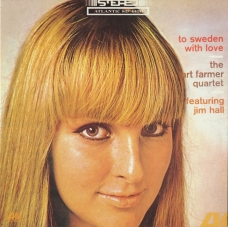 tic set is a bit unusual. tic set is a bit unusual. The Art Farmer Quartet (consisting of flugelhornist Farmer, guitarist Jim Hall, bassist Steve Swallow and drummer Pete LaRoca), which was together from 1962-64 (after the demise of the Jazztet), was passing through Stockholm, Sweden at the time of this date and the musicians felt inspired to record a full album of traditional Swedish folk songs. Respect is paid to the often haunting melodies and Farmer sounds quite at home in this context, sometimes hinting a bit at Chet Baker. Fortunately, not all of the tunes are taken at a ballad pace, and once the themes are fully stated, Farmer and Hall have plenty of harmonically sophisticated solos. The band's cool and restrained style suits the music perfectly, turning it into jazz without losing its essence. Although a brief set (at under 33 minutes), every note counts on this successful outing. Personnel: Art Farmer (fluegelhorn) Jim Hall (guitar) Pete LaRoca (drums) Steve Swallow (bass) Tracklist: 01. Va Da Du (Was It You) (Traditional) 5.24 02. De Salde Sina Hemman (They Sold Their Homestead) (Traditional) 6.13 03. Den Motstravige Brudgummen (The Reluctant Groom) (Traditional) 5.52 04. Och Hor Du Unga Dora (And Listen Young Dora) (Traditional) 5.51 05. Kristallen Den Fina (The Fine Crystal) (Traditional) 3.12 06. Visa Vid Midsommartid (Midsummer Song) (Traditional) 6.15 |
|
I will stay for two weeks in the north of Spain ... and after my holidays with my partner I´ll continue with this "new" blog ... See you soon !
 |
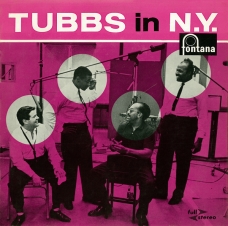 Tubby Hayes was a superior tenor saxophonist from England who played in the tradition of Zoot Sims and Al Cohn, with just a dash of Johnny Griffin and early John Coltrane. Tubby Hayes was a superior tenor saxophonist from England who played in the tradition of Zoot Sims and Al Cohn, with just a dash of Johnny Griffin and early John Coltrane. This album finds Tubby holding his own with a top-notch swinging rhythm section (pianist Horace Parlan, bassist George Duvivier, and Dave Bailey) along with guests Clark Terry (on four of the ten selections) and vibraphonist Eddie Costa (on three songs). Whether it be an up-tempo rendition of "Airegin" or a tender "You're My Everything," Tubby Hayes shows that he is an underrated legend. Personnel: Dave Bailey (drums) Eddie Costa (vibraphone) George Duvivier (bass) Tubby Hayes (saxophone) Horace Parlan (piano) Cark Terry (trumpet) Tracklist: 01. You for Me (Haines) 4.38 02. A Pint Of Bitter (Terry) 7.05 03. Airegin (Rollins) 8.59 04. Opus Ocean (Terry) 7.29 05. Soon (Gershwin) 7.44 06. Doxy (Rollins) 9.18 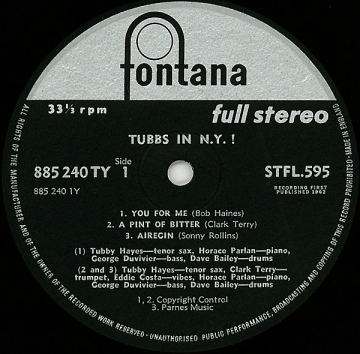 ARMU 0035 |
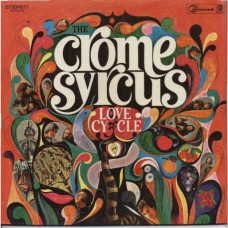 This psyhcedelic nugget wrapped within a lovely hippie album covers
offers to an interested listener both conventional San Francisco psych
pop rock, and also experimental material, proving that they were among
the rock artists searching the boundaries of their art and style. The
opening track might be a disappointment to a prog listener, but I
enjoyed the more fragile following numbers. This psyhcedelic nugget wrapped within a lovely hippie album covers
offers to an interested listener both conventional San Francisco psych
pop rock, and also experimental material, proving that they were among
the rock artists searching the boundaries of their art and style. The
opening track might be a disappointment to a prog listener, but I
enjoyed the more fragile following numbers. The keyboard driven sound with much vocals and emotional approach also remind the sound of the Vanilla Fudge, and I just love that soaring acid guitar giving the solos. The last song of the album is a 17-minutes long epic, containing some references to classical choral music, which then gets a sudden LSD-treatment. The composition is interesting, but not the most brilliant. However quite innovative among the 1960's American garage scene, focusing to more straightforward muscial elements than complex compositional arrangements in my own observation. I would suggest this album to fans of the history of early artistic psychedelic rock music and those deeply interested on hippie rock scene. 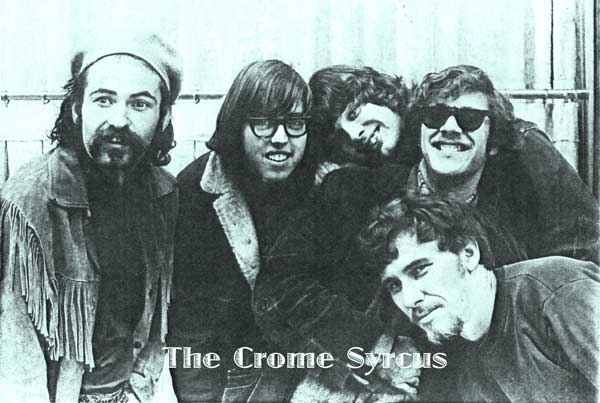 Personnel: John Gaborit (guitar) Lee Graham (bass, flute) Rod Pilloud (drums) Dick Powell (keyboards, harmonica) Ted Shreffler (keyboards) Tracklist: 01. Take It Like A Man (Graham) 3.34 02. You Made A Change In Me (Graham) 5.29 03. Crystals (Graham) 3.00 ARMU 003404. Never Come Down (Graham) 3.48 05. Woman Woman (Shreffler) 06. The Love Cycle (Graham) 17.25 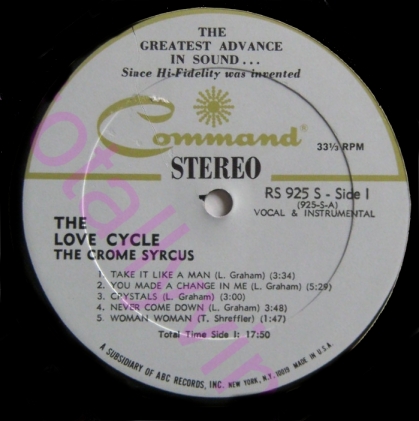 |
|
|
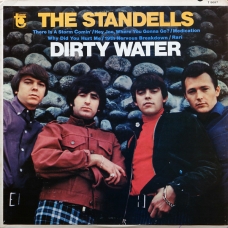 "Dirty Water" is the Tower debut. The title song is a Punk classic
reproduced on numerous "Nuggets"-type comps, and along with the five
and-a-half minute b-side, "Rari" was recorded in Hollywood by Richard
Podolor. Most of the remaining tracks - originals, covers, and songs
written by Cobb, an accomplished sonwriter - were recorded a year later
(April 1966) at Kearnie Barton's Seattle Studio, and as re-mastering
engineer Bob Irwin points out, were "over-modulated directly to the
multi-track tape, causing the finished master to become a
powerful...gritty and distorted wash of sound..." charactistic of the
Northwest punk/garage bands recording at Barton's studio during the
period (such as the Sonics). These early recordings contained influenced
later groups like the MC5. "Dirty Water" is the Tower debut. The title song is a Punk classic
reproduced on numerous "Nuggets"-type comps, and along with the five
and-a-half minute b-side, "Rari" was recorded in Hollywood by Richard
Podolor. Most of the remaining tracks - originals, covers, and songs
written by Cobb, an accomplished sonwriter - were recorded a year later
(April 1966) at Kearnie Barton's Seattle Studio, and as re-mastering
engineer Bob Irwin points out, were "over-modulated directly to the
multi-track tape, causing the finished master to become a
powerful...gritty and distorted wash of sound..." charactistic of the
Northwest punk/garage bands recording at Barton's studio during the
period (such as the Sonics). These early recordings contained influenced
later groups like the MC5.
Drummer Dave Dodd (an ex-Mouseketeer!) had a sexy, delicately cool and seductive voice that influenced (N.Y. Dolls guitarist)Johnny Thunders' breathy singing on "Hurt Me" and other classics. Dodd sings about two-thirds of the material included and is a near-forgotton punk-rock progenitor. He could snarl with the best Jagger-imitators and convey the soft bad-boy sexiness that exudes both cruelty and vulnerability. (His vocal on the classic "Medication" is one of the most understated and seductive ever!). Despite scores of versions recorded in 1966, Dodd manages to make "Hey Joe" sound like it was written for him. Keyboardist Larry Tamblyn also contributes a couple of fine rockers. The bonus cuts are all worthy,including the pre-Cobb audition track, the early-Beatles influenced "It's All In Your Mind," and two solid outtakes from the "Try It" sessions, with ex-Love bassist (and "Jaws" cinematographer) John Fleck. I advise the reader to pick up all four Sundazed remasters rather than the earlier Rhino Best-of or the ugly Hip-O comp. Not only do you get the complete Tower recordings, but the best sound and notes as well. With more forward looking management, this group might be remembered as more than 1 or 2 hit wonders today - they were LA garage rockers of the first rank, with plenty of attitude and raunch - and, good songs - to spread macross these four killer sets. (The other remasters are "Why Pick On Me/Sometimes Good Guys Dont Wear White," 1966; the much improved-by-bonus-material "The Hot Ones," from early '67; and the mostly brilliant and risk-taking "Try It," 1967.) Hey kids, collect 'em all! (by J.P. Ryan) 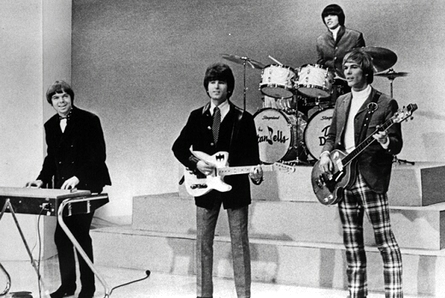 Personnel: Dick Dodd (drums) Gary Lane (bass) Larry Tamblyn (organ, vocals) Tony Valentino (guitar) + Dave Burke (bass on 12.) John Fleck (bass on 14 + 15.) Tracklist: 01. Medication (DiTosti/Allton) 2.42 02. Little Sally Tease (Valley) 2.57 03. There Is A Storm Comin´ (Cobb) 3.18 04. 19th Nervous Breakdown (Jagger/Richards) 3.54 05. Dirty Water (Cobb) 2.46 06.Pride And Devotion (Tamblyn) 2.13 07. Hey Joe (Roberts) 2.12 08. Why Did You Heart Me (Dodd/Valentino) 2.28 09. Rari (full version) (Cobb) 5.32 10. Batman (Hefti) 3.04 11. It´s All In Your Mind (Cobb) 2.38 12. Love Me (Dodd/Valentino) 2.45 + 13. Medication (instrumental version) (DiTosti/Allton) 2.43 14. Poor Man´s Prison (Colley/Henderson) 2.23 15. Take A Ride (Cobb) 2.08 |
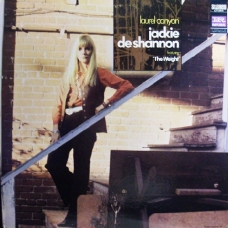 Laurel Canyon wonderfully captures the natural, idyllic vibe of its
titular setting, the creative nexus of the late-'60s Los Angeles music
scene. Laurel Canyon wonderfully captures the natural, idyllic vibe of its
titular setting, the creative nexus of the late-'60s Los Angeles music
scene. Swapping the polished pop approach of Jackie DeShannon's past hits for an appealingly rough-edged country-soul sensibility, the record celebrates a place and time that transcended the physical world to signify a virtual Garden of Eden for the flower-power generation. Featuring extensive contributions from pianist Mac "Dr. John" Rebennack and guitarist Russ Titleman, Laurel Canyon boasts a swampy, lived-in charm that perfectly complements DeShannon's sexily gritty vocals. Her soulful reading of the Band's "The Weight" anticipates Aretha Franklin's like-minded cover, but most impressive are originals like "Holly Would" and the title cut, which eloquently articulate the rustic beauty of their creator's environs. (by Jason Ankeny) 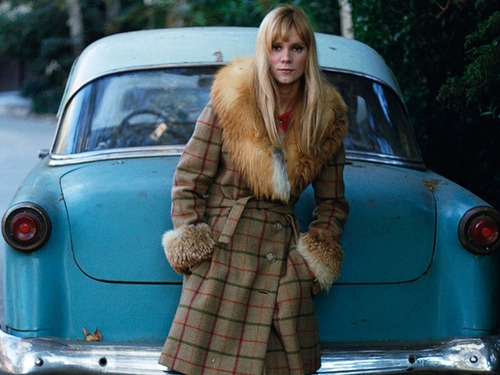 Personnel: Harold R. Battiste (piano) Jackie DeShannon (vocals) Paul Humphrey (drums) Abe Mills (drums) Mac "Dr. John" Rebennack (piano) Craig Tarwater (guitar) Russ Titelman (guitar) Ray Trainer (bass) + Brendetta Davis (background vocals) Don MacAllister (background vocals) Barry White (background vocals) Tracklist: 01. Laurel Canyon (DeShannon) 4.07 02. Sunshine Of Your Love (Bruce/Brown/Clapton) 3.35 03. Crystal Clear (Trainer) 3.26 04. She´s My Best Friend (MacAllister) 3.15 05. I Got My Reason (White) 2.52 06. Holly Would (DeShannon) 3.09 07. You´ve Really Got A Hold On Me (Robinson) 2.58 08. The Weight (Robertson) 3.05 09. Bitter Honey (Williams/Nichols) 2.33 10. Come And Stay With Me (DeShannon) 3.07 11. L.A. (DeShannon) 2.47 12. Too Close (Stone/Green/DeShannon) 4.20 ARMU 0031 |
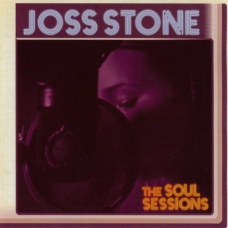 Q: She's 16 and British, what can she possibly know about singing
vintage American soul music? A: Enough to make you squirm, get off your
ass, and dance close with anybody who'll have you. Joss Stone
is a young woman who, if you believe the story, was about to record her
wannabe pop smash debut and then be well on her way to becoming the
next Britney/Christina. Then she heard some vintage American Miami soul made by the likes of Latimore, Little Beaver, Betty Wright, Timmy Thomas, and the like, and genuine inspiration took hold. The result of all this career changing (or diva postponement) is The Soul Sessions, a collection of ten badass soul classics recorded with all of the above folks -- soul princess Betty Wright and S-Curve's Steve Greenberg produced almost all of it in Miami, though a pair of tracks were recorded in New York with R&B wunderkind Mike Mangini and a souled-out cover of the White Stripes "Fell in Love With a Boy," guided by the Roots'
?uestlove (Ahmir Thompson) on the modern tip, was cut in Philly. These
jams drip honey sweet and hard with tough, sexy soul, and Stone's voice is larger than life. It's true she's been tutored and mentored by Wright and her musical collaborators in the science of groove, but she keeps it raw enough to be real. Her reading of Harlan Howard's "The Chokin' Kind" reveals that it should have been an R&B tune all along -- check out Little Beaver's (Willie Hale) guitar solo. Her reading of Bobby Miller's "Dirty Man," a track associated with Wright, is gutsy and completely believable, and the interplay between Latimore's piano and Beaver's funky, shimmering guitaristry brings Stone's vocal down to street level. Q: She's 16 and British, what can she possibly know about singing
vintage American soul music? A: Enough to make you squirm, get off your
ass, and dance close with anybody who'll have you. Joss Stone
is a young woman who, if you believe the story, was about to record her
wannabe pop smash debut and then be well on her way to becoming the
next Britney/Christina. Then she heard some vintage American Miami soul made by the likes of Latimore, Little Beaver, Betty Wright, Timmy Thomas, and the like, and genuine inspiration took hold. The result of all this career changing (or diva postponement) is The Soul Sessions, a collection of ten badass soul classics recorded with all of the above folks -- soul princess Betty Wright and S-Curve's Steve Greenberg produced almost all of it in Miami, though a pair of tracks were recorded in New York with R&B wunderkind Mike Mangini and a souled-out cover of the White Stripes "Fell in Love With a Boy," guided by the Roots'
?uestlove (Ahmir Thompson) on the modern tip, was cut in Philly. These
jams drip honey sweet and hard with tough, sexy soul, and Stone's voice is larger than life. It's true she's been tutored and mentored by Wright and her musical collaborators in the science of groove, but she keeps it raw enough to be real. Her reading of Harlan Howard's "The Chokin' Kind" reveals that it should have been an R&B tune all along -- check out Little Beaver's (Willie Hale) guitar solo. Her reading of Bobby Miller's "Dirty Man," a track associated with Wright, is gutsy and completely believable, and the interplay between Latimore's piano and Beaver's funky, shimmering guitaristry brings Stone's vocal down to street level.
For a woman as young as Stone to tackle Carla Thomas' "I've Fallen in Love With You" and Aretha Franklin's "All the King's Horses," not to mention John Ellison's nugget "Some Kind of Wonderful," takes guts, chops, or a genuine delusional personality to pull off. Stone has the former two. She has unique phrasing and a huge voice that accents, dips, and slips, never overworking a song or trying to bring attention to itself via hollow acrobatics. The strings and funky backbeat provided by Thompson on "I've Fallen in Love With You" are chilling in the way they prod Stone to just spill a need out of her heart that one would believe would be beyond her years. And speaking of Thompson, his production of the Stripes tune is more than remarkable; it conveys Jack White's intent but in an entirely new language. The set closes with Stone's radical reread of the Isleys' "For the Love of You," a daunting and audacious task. The way she tackles this song, prodded only by Angelo Morris' keyboard whispering alongside her, is far from reverential, but it is true, accurate, moving, and stunningly -- even heartbreakingly -- beautiful. This is a debut that, along with those fine practitioners in the nu-soul underground such as Peven Everett, Julie Dexter, Yas-rah, Fertile Ground, and a few others, is solid proof that soul is alive and well. And perhaps, given her youth and stunning looks, the perverse star-making machinery will use this unusual entry into the marketplace to reinvestigate the wonders of timeless depth and vision inherent in soul and R&B that are far from exhausted, as this record so convincingly proves. 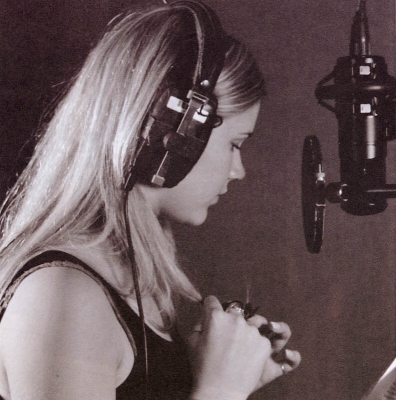 Personnel: Cindy Blackmann (drums) Jack Daley (bass) Willie "Little Beaver" Hale (guitar) Benny Latimore (piano) Angelo Morris (keyboards, guitar) Joss Stone (vocals) + Adam Blackstone (bass on 03. + 10.) Deanna Carroll (background vocals on 07.) Mark Ciprit (guitar on 07.) Kirk Douglas (guitar on 03. + 10.) Karen Dreyfuss (viola on 07.) Taneka Duggan (background vocals on 07.) Jimmy Farkus (guitar on 05.) Sam Furnace (saxophone on 07.) Steve Greenwell (bass on 07.) Dawn Hannay (viola on 07.) Kamal (keyboards on 03.) Lisa Kim (violin on 07.) Myung Hi Kim (violin on 07.) Sarah Kim (violin on 07.) Soo Hyun Kwon (violin on 07.) Leanne LeBlanc (cello on 07.) Liz Lim (violin on 07.) Mike Mangini (tambourine on 02.) Namphuyo Aisha McCray (background vocals on 01., 02., 04., 06. + 09.) Ignacio Nunez (percussion on 02.) Sandra Park (violin on 07.) Danny Pierre (keyboards on 07.) James Poyser (keyboards on 03. + 10.) Robert Rinehart (viola on 07.) Tom Rosenfeld (viola on 07.) Laura Seaton (violin on 07.) Sarah Seiver (cello on 07.) Rob Shaw (violin on 07.) Fiona Simon (violin on 07.) Alan Stepansky (cello on 07.) Angie Stone (background vocals on 03. + 10.) Jenny Strenger (violin on 07.) Timmy Thomas (organ on 01., 02., 04. + 08.) Ahmir Thompson (drums on 03., 07. + 10.) Jeremy Turner (cello on 07.) Betty Wright (background vocals on 01. - 03., 04., 06., 09. - 10.) Jeanette Wright (background vocals on 01., 02., 04., 06., 09.) Sharon Yamada (violin 07.) Jung Sun Yoo (violin on 07.) Tracklist: 01. The Chokin´ Kind (Howard) 3.35 02. Super Duper Love (Are You Diggin´ On Me ?) Pt. 1 (Garner) 4.20 03. Fell In Love With A Boy (White) 3.38 04. Victim Of A Foolish Heart (Buckins/Jackson) 5.31 05. Dirty Man (Miller) 2.59 06. Some Kind Of Wonderful (Ellison) 3.56 07. I´ve Fallen In Love With You (Thomas) 4.29 08. I Had A Dream (Sebastian) 3.01 09. All The King´s Horses (Franklin) 3.03 10. For The Love Of You Pt. 1 & 2 (E.Isley/M.Isley/K.Isley/R.Isley/R.Isley/Jasper) 7.33 |


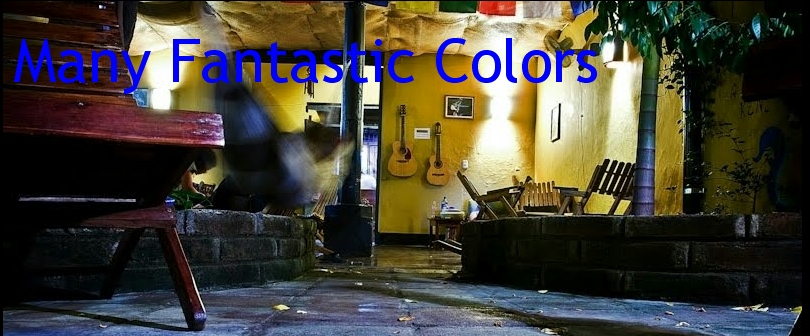
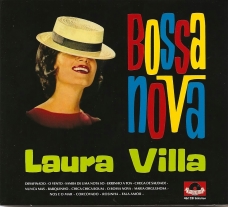
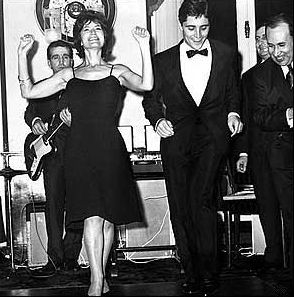
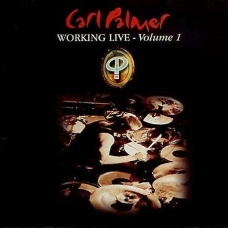
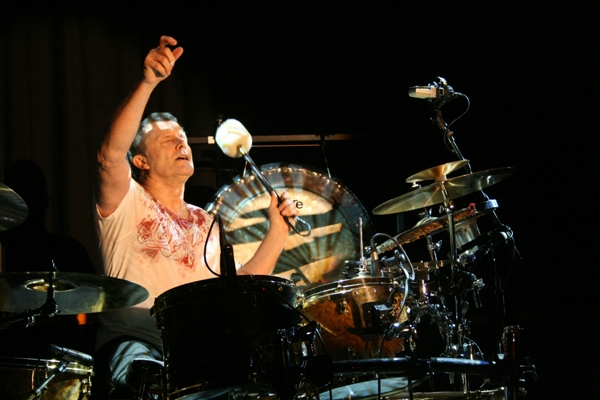
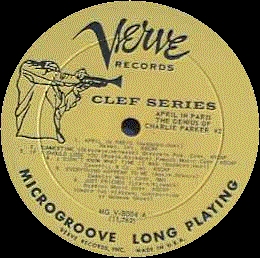
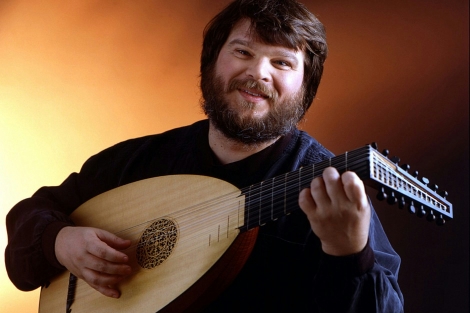
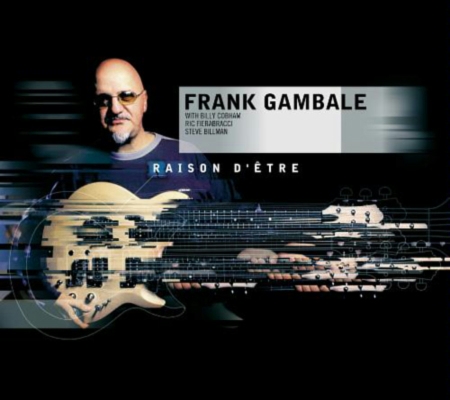
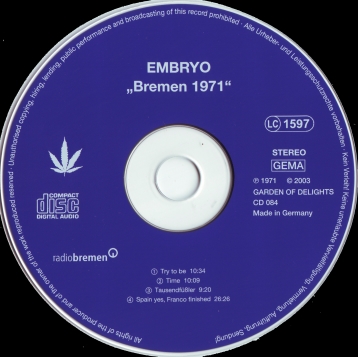
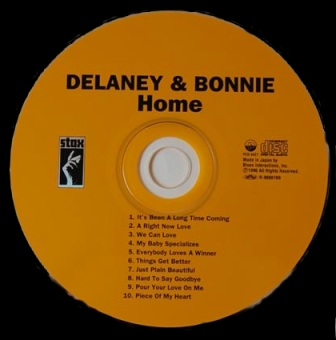
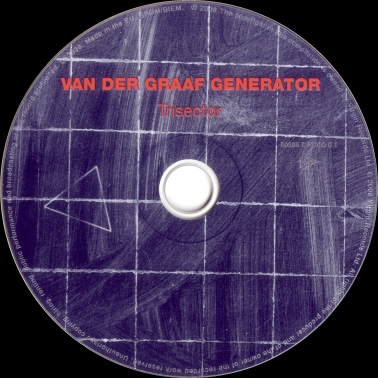
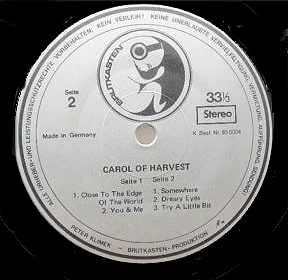
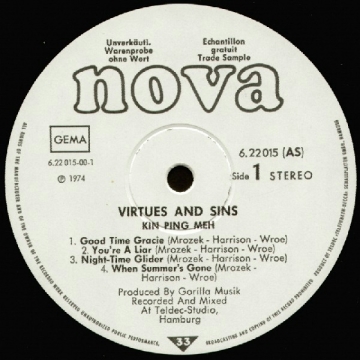
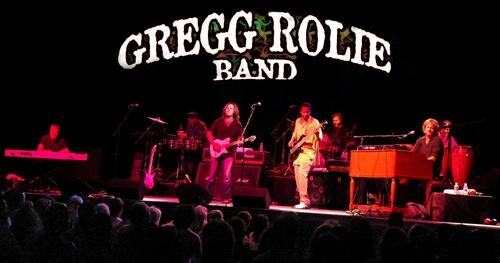
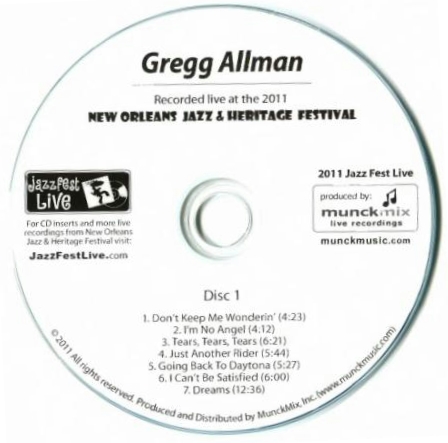
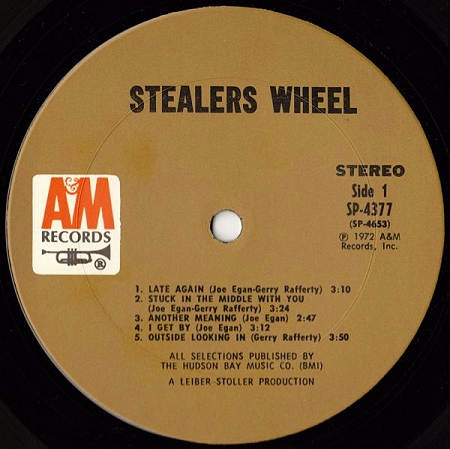
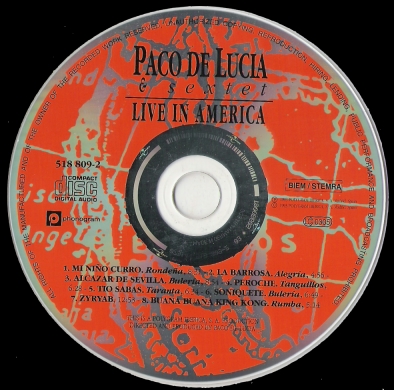
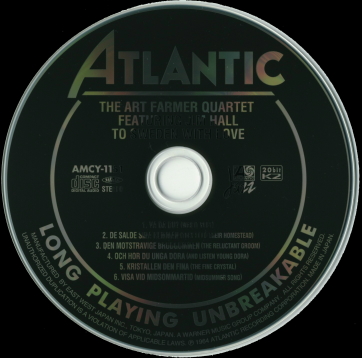
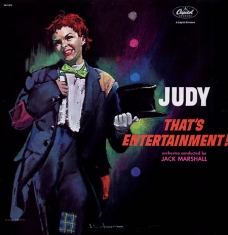 Five years into her tenure at Capitol Records, Judy Garland
had slipped from the top rung of the label's concerns. After her first
three Capitol LPs all figured in the charts, her next three did not, and
when she came to record her sixth studio album and seventh release
overall, her sessions were no longer being overseen by heavyweight
arranger/conductors Nelson Riddle or Gordon Jenkins, who had handled her last four; this time, the arrangements were farmed out and Jack Marshall conducted. Nevertheless, the results were engaging. Twelve songs Garland had never before recorded were chosen, including a good newly written tune by André Previn and Dory Langdon,
"Yes." The rest came from the treasure chest of pop standards written
for Broadway and the movies in the 1920s, '30s, and '40s (plus the 1953
title song), by such songwriters as Irving Berlin, the Gershwins, Dietz & Schwartz, and Garland's personal favorites, Arlen & Harburg. Marshall
and his arrangers mixed up the styles, from full-scale orchestral
settings to the bluesy small-band accompaniment to "How Long Has This
Been Going On?" and Marshall's own piano on Kurt Weill's "It Never Was You." Garland
was in good voice and sang with assurance, resulting in another
terrific collection. Unfortunately, she was touring in Europe when the
album was released and, lacking any real promotion, it didn't sell. The
following year, however, Garland
used the material as the basis of her stage show, singing five of the
songs at the performance that produced her chart-topping, Grammy-winning
comeback album Judy at Carnegie Hall, so That's Entertainment! serves as something of a curtain raiser to that collection. (by William Ruhlmann)
Five years into her tenure at Capitol Records, Judy Garland
had slipped from the top rung of the label's concerns. After her first
three Capitol LPs all figured in the charts, her next three did not, and
when she came to record her sixth studio album and seventh release
overall, her sessions were no longer being overseen by heavyweight
arranger/conductors Nelson Riddle or Gordon Jenkins, who had handled her last four; this time, the arrangements were farmed out and Jack Marshall conducted. Nevertheless, the results were engaging. Twelve songs Garland had never before recorded were chosen, including a good newly written tune by André Previn and Dory Langdon,
"Yes." The rest came from the treasure chest of pop standards written
for Broadway and the movies in the 1920s, '30s, and '40s (plus the 1953
title song), by such songwriters as Irving Berlin, the Gershwins, Dietz & Schwartz, and Garland's personal favorites, Arlen & Harburg. Marshall
and his arrangers mixed up the styles, from full-scale orchestral
settings to the bluesy small-band accompaniment to "How Long Has This
Been Going On?" and Marshall's own piano on Kurt Weill's "It Never Was You." Garland
was in good voice and sang with assurance, resulting in another
terrific collection. Unfortunately, she was touring in Europe when the
album was released and, lacking any real promotion, it didn't sell. The
following year, however, Garland
used the material as the basis of her stage show, singing five of the
songs at the performance that produced her chart-topping, Grammy-winning
comeback album Judy at Carnegie Hall, so That's Entertainment! serves as something of a curtain raiser to that collection. (by William Ruhlmann)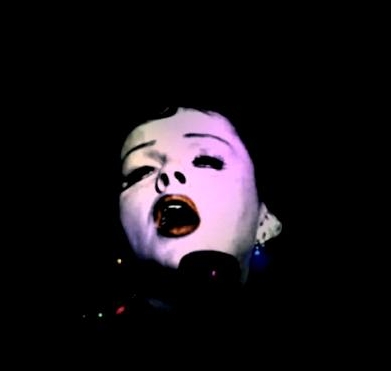
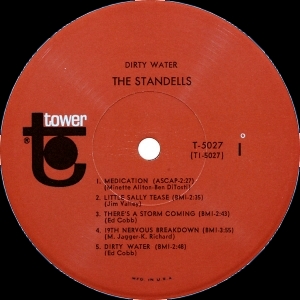
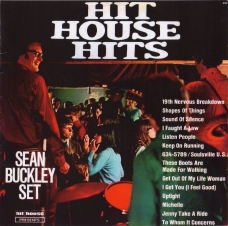 In 1962/3,
Dagenham guitarists Vince Nichols and Kevin Sheehan, sharing a passion for
American R'n'B, formed rock band The Boys.
In 1962/3,
Dagenham guitarists Vince Nichols and Kevin Sheehan, sharing a passion for
American R'n'B, formed rock band The Boys.